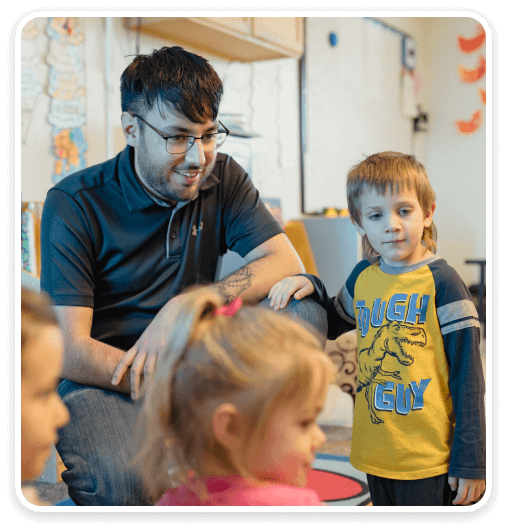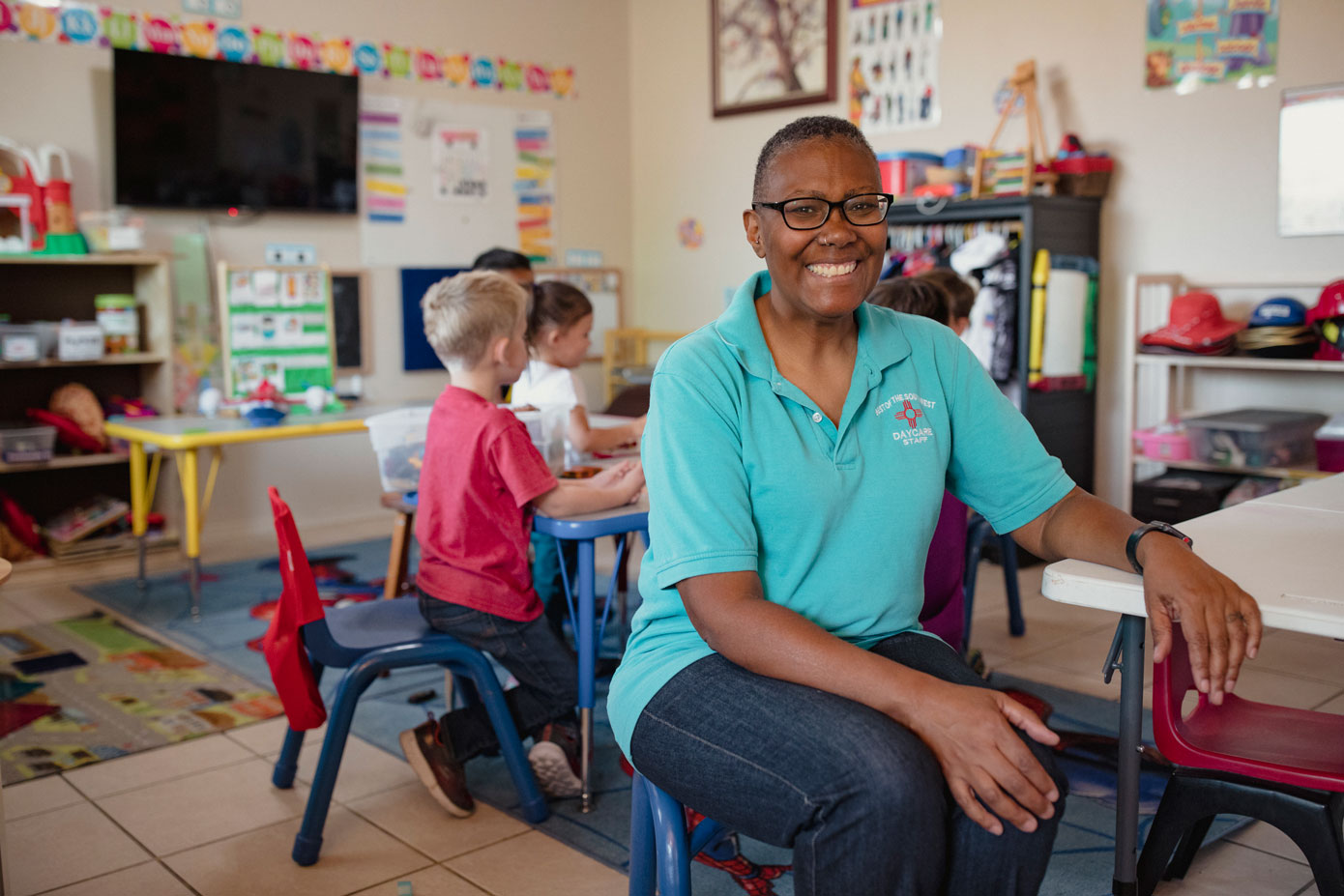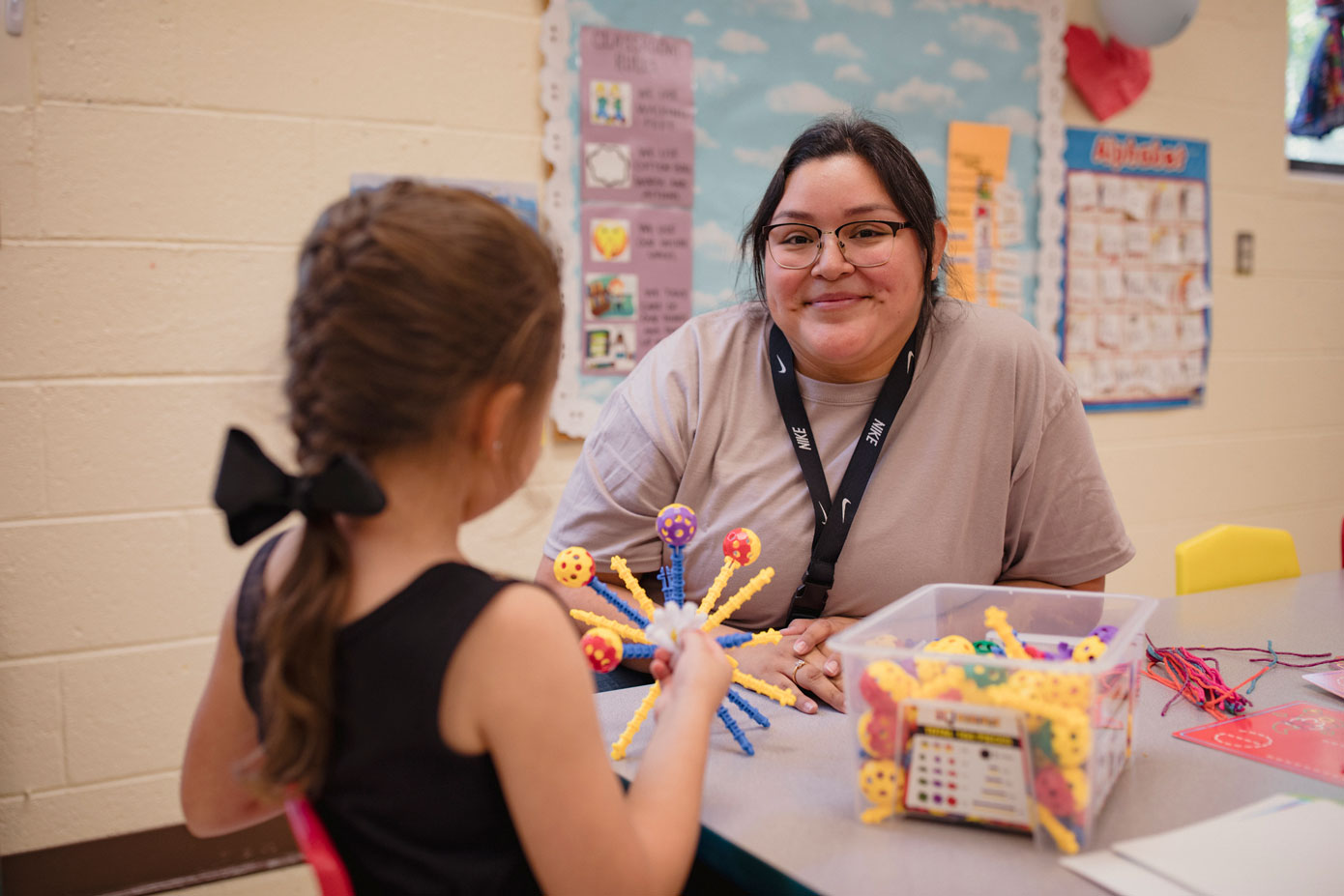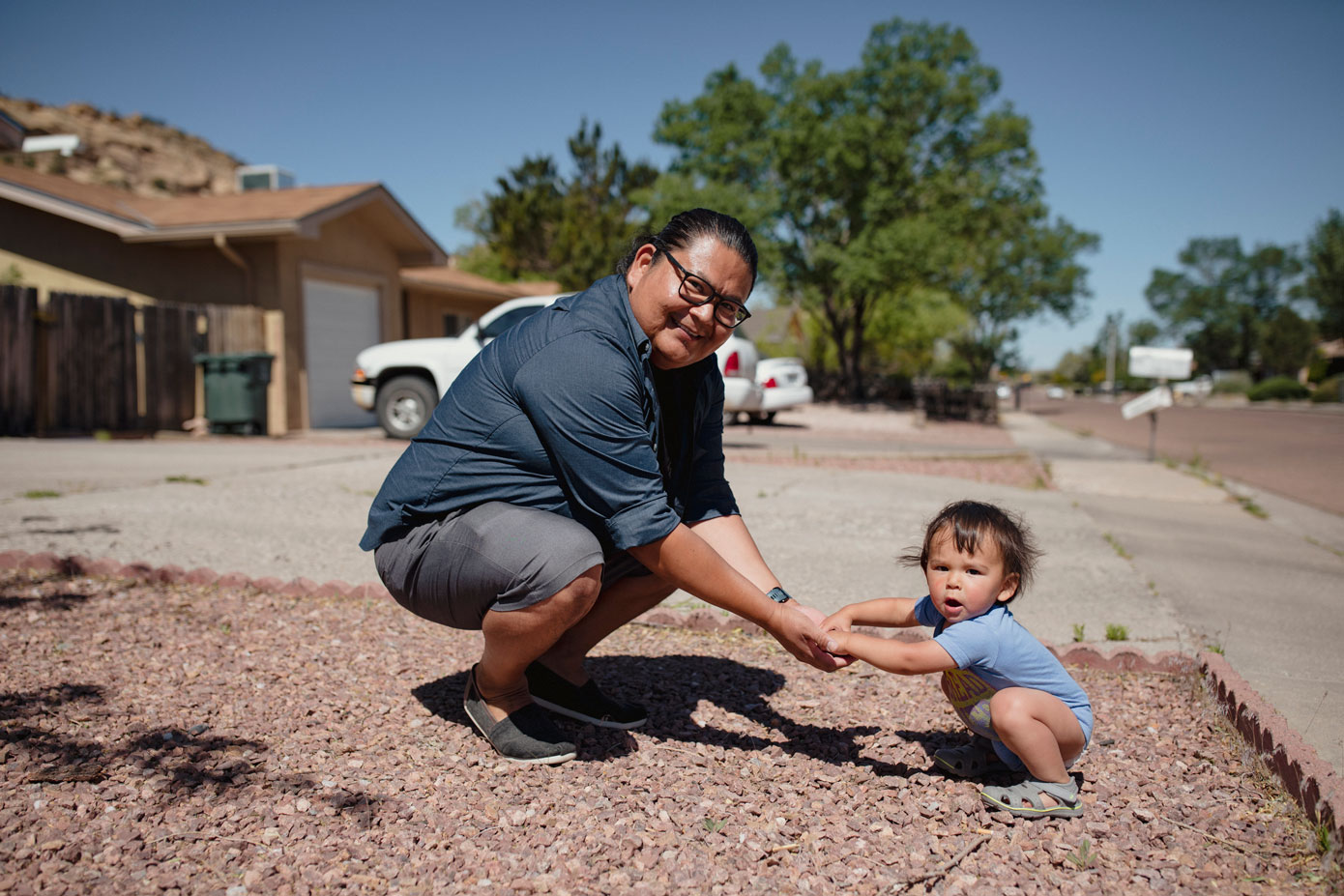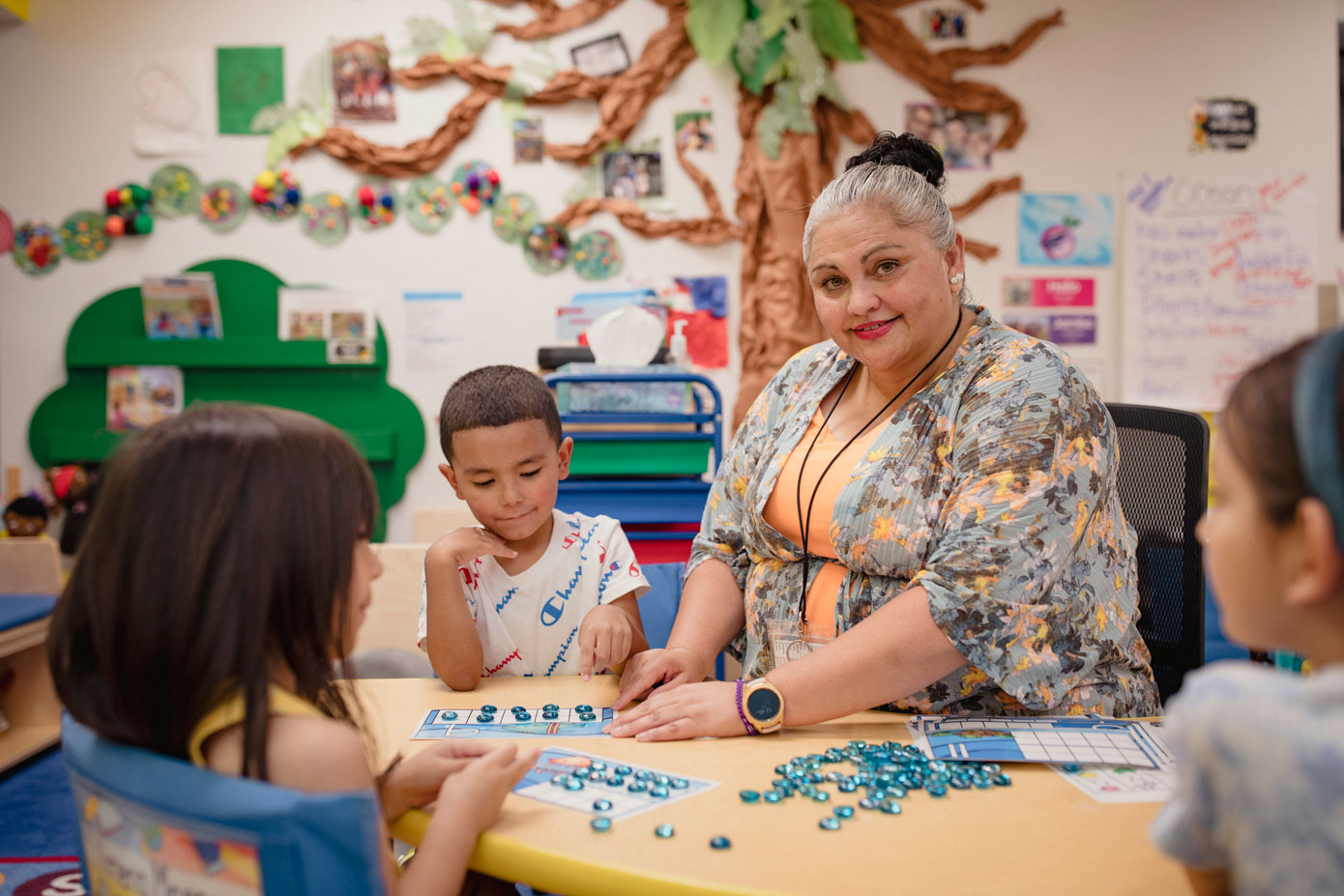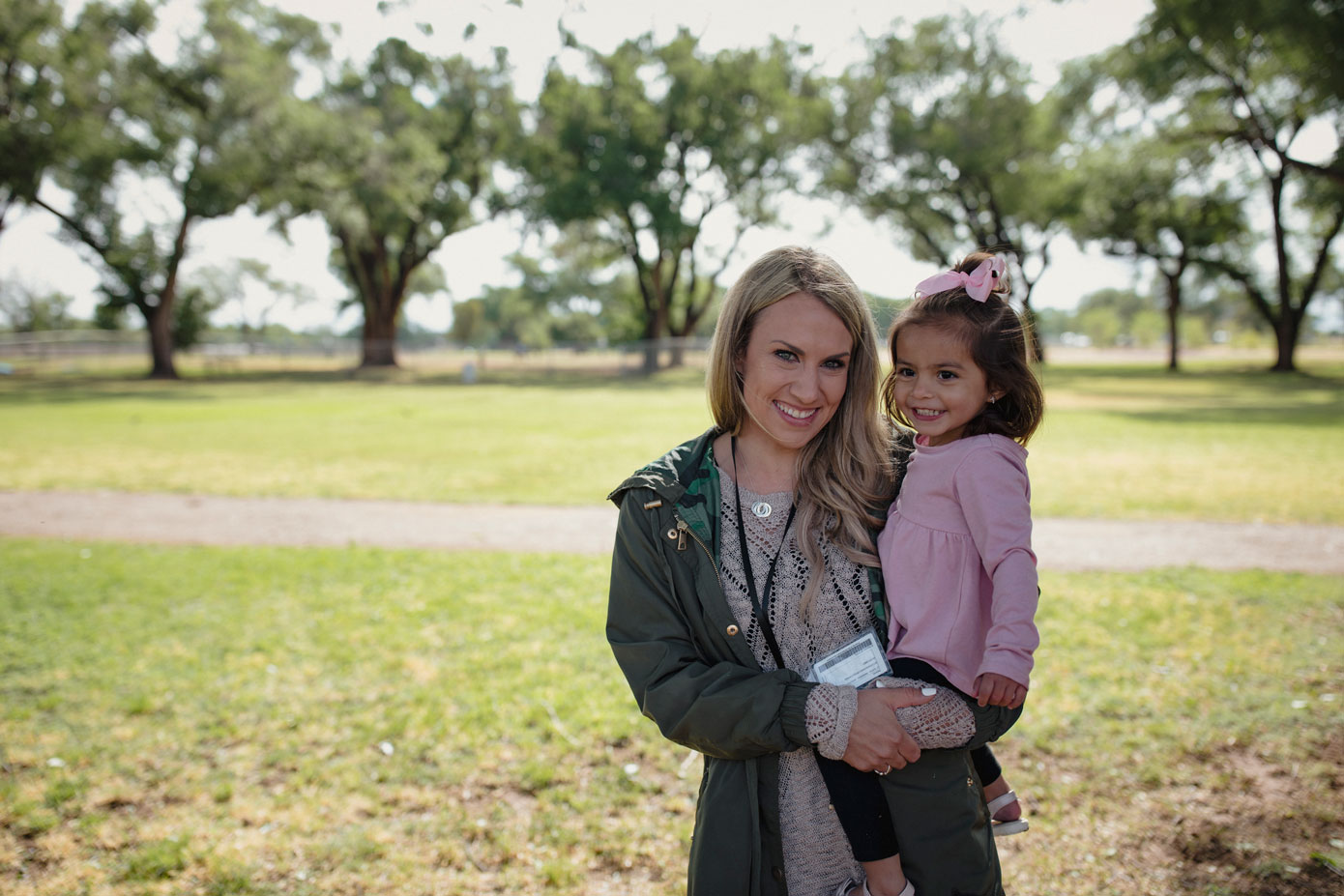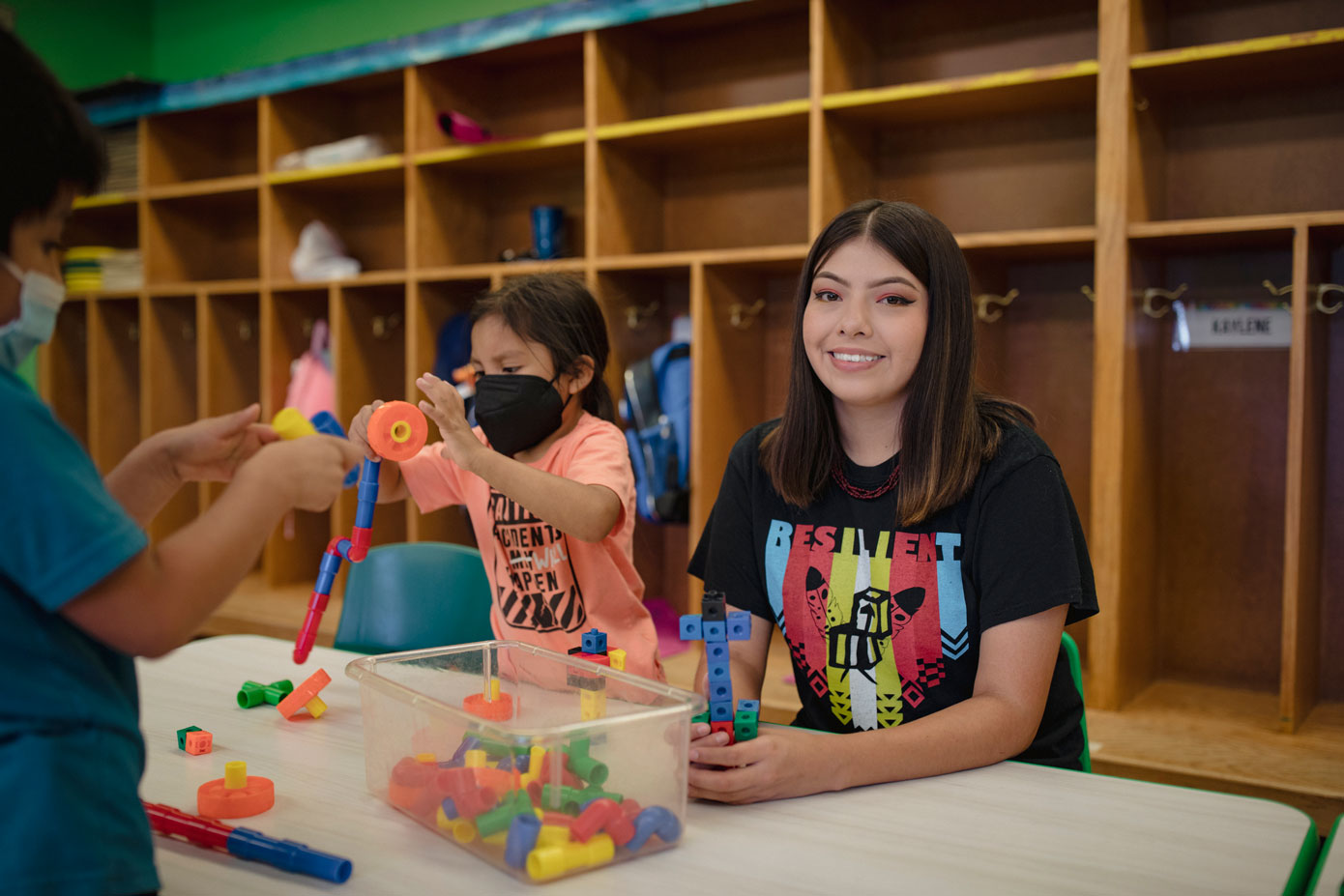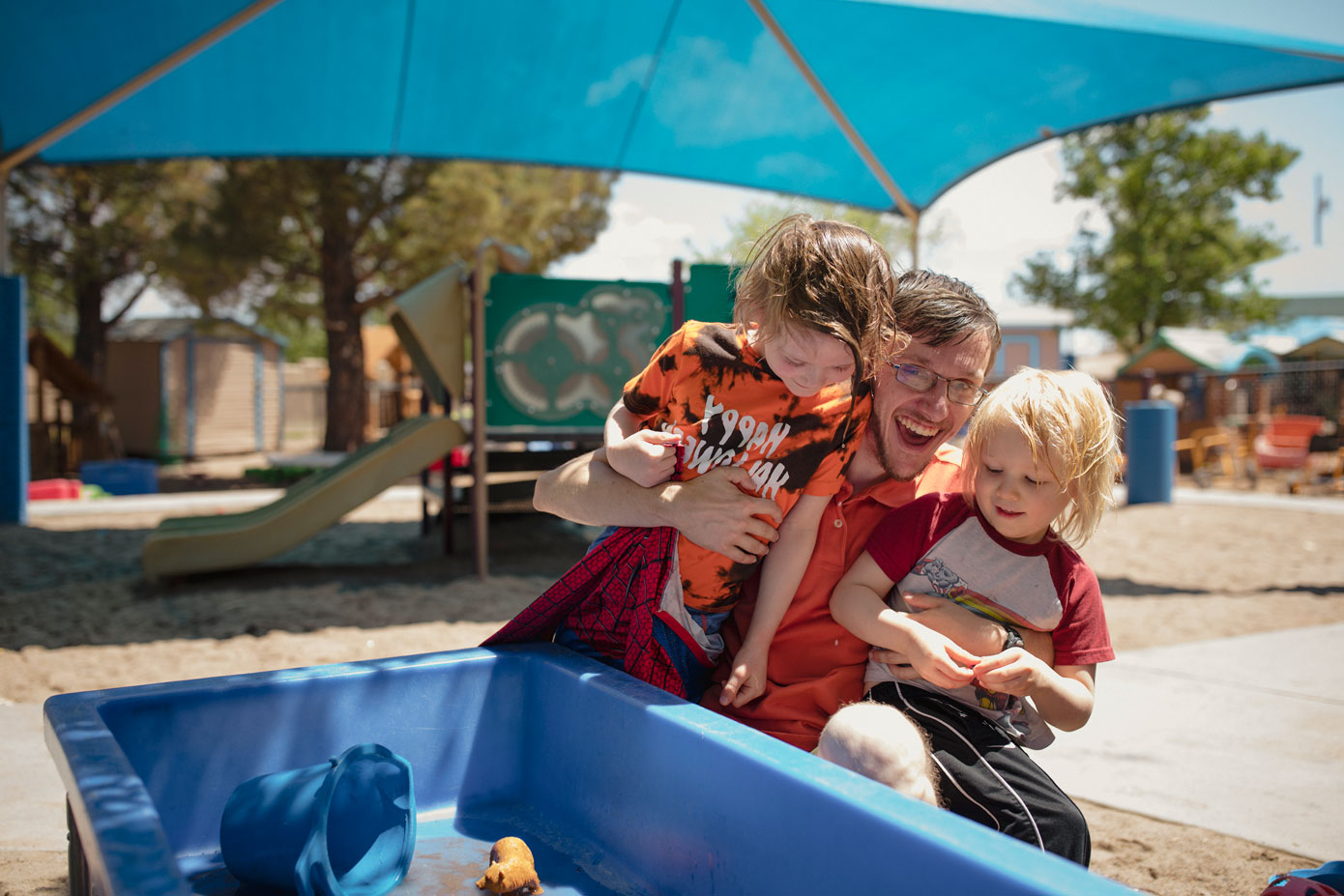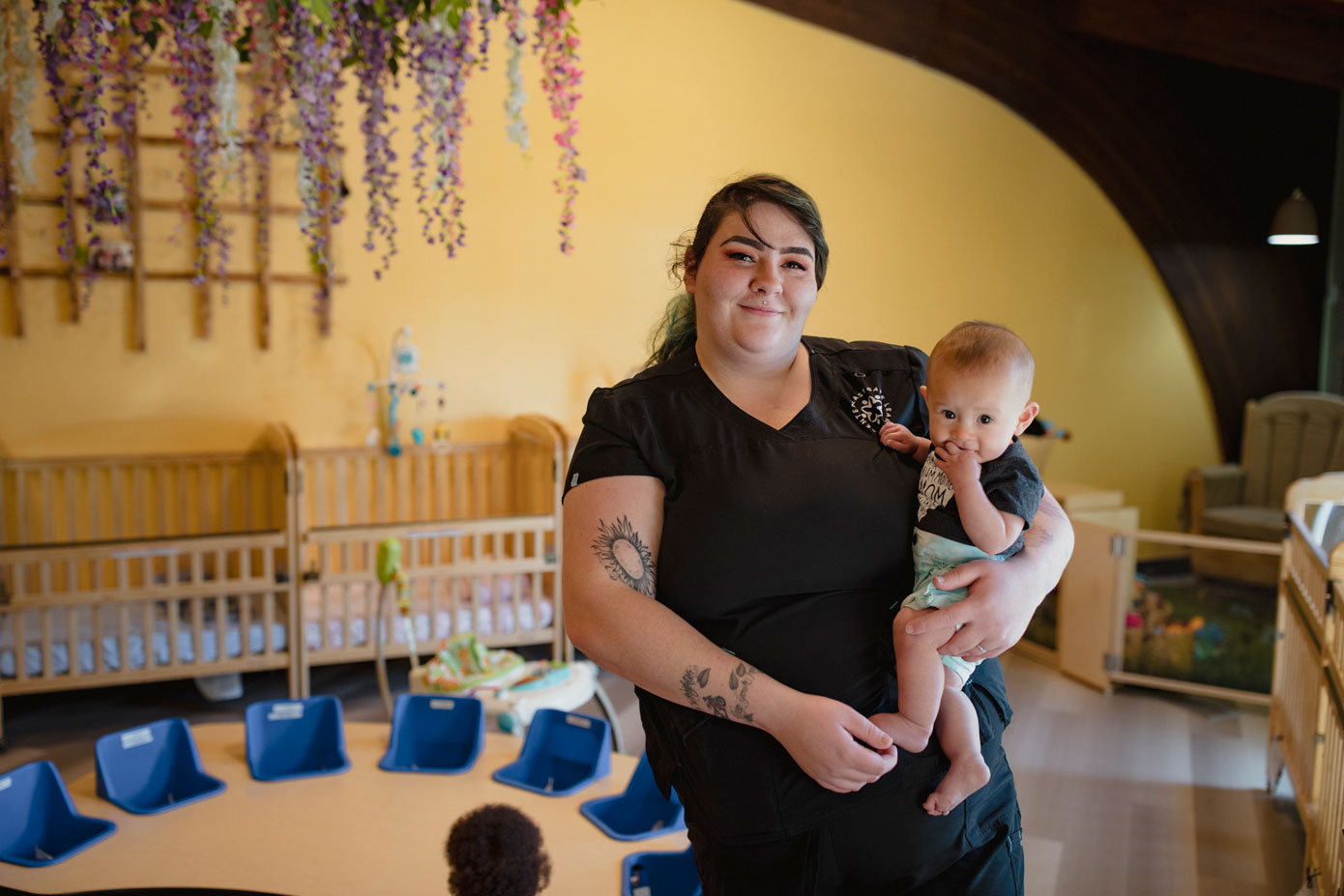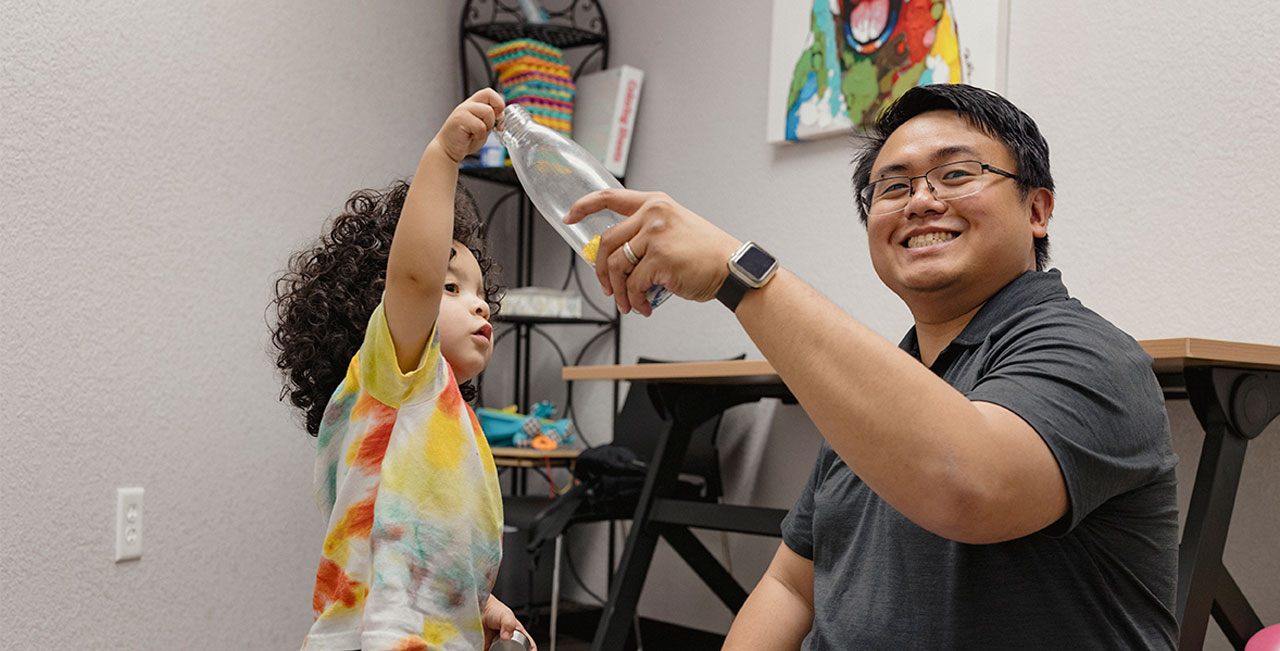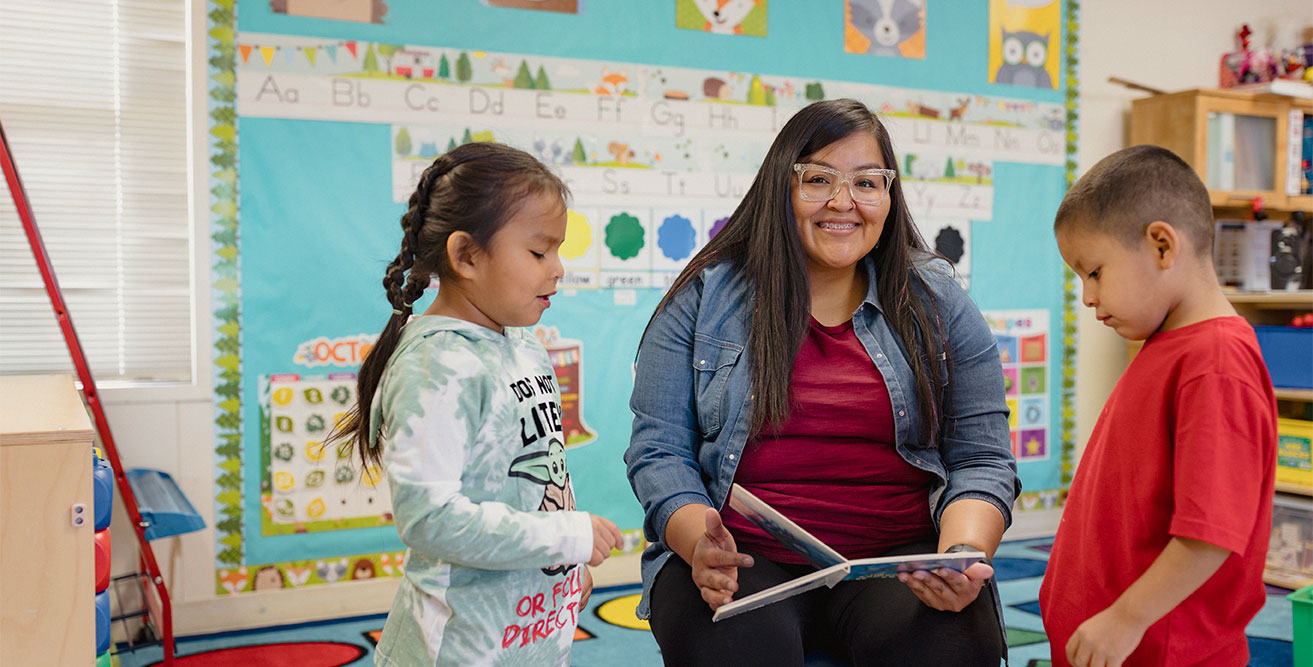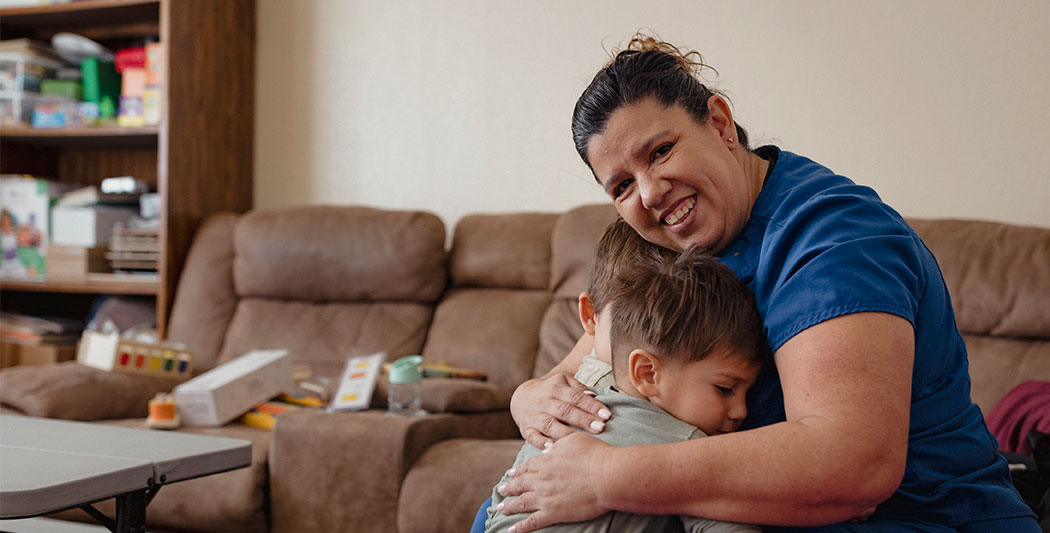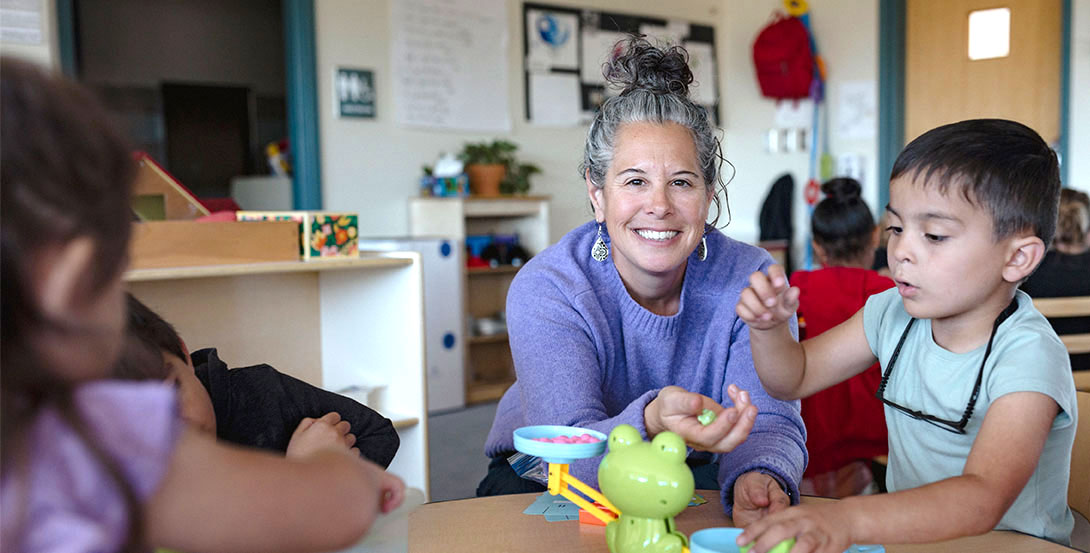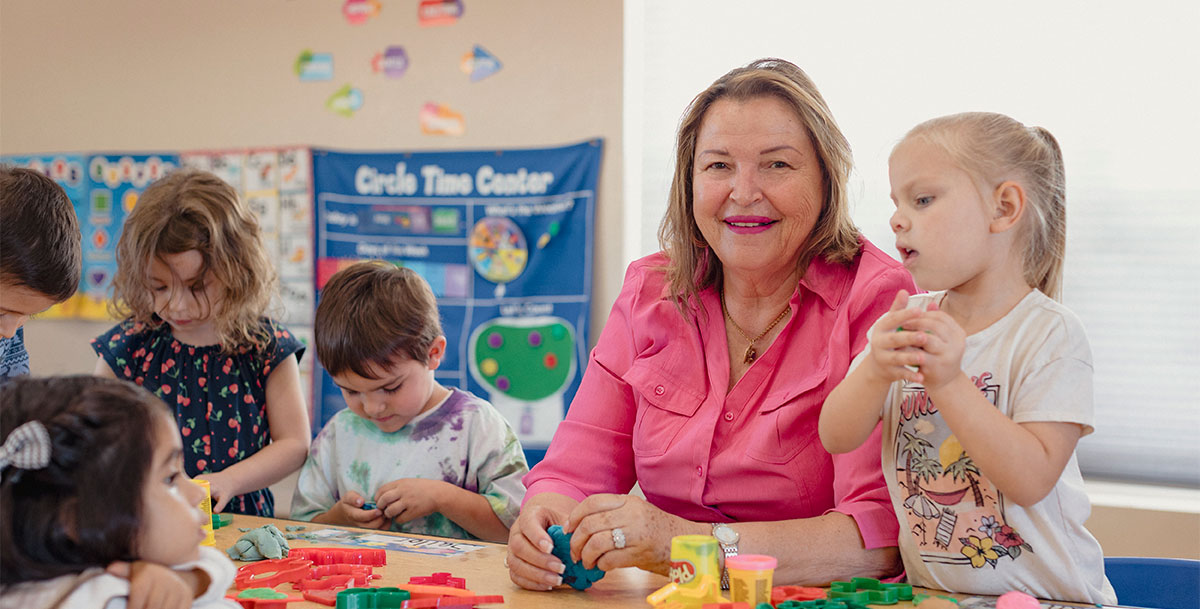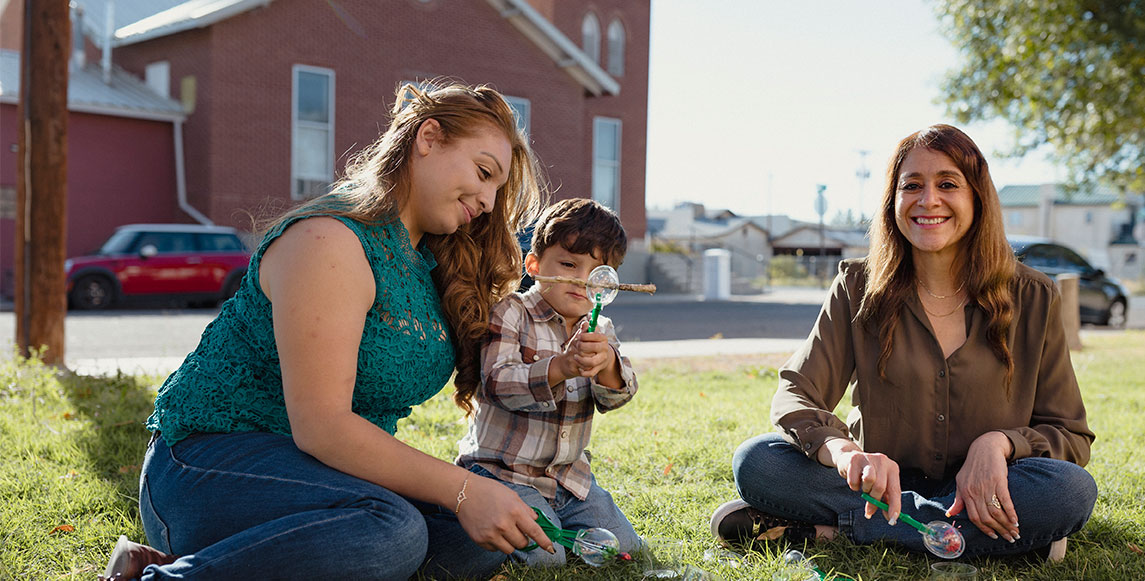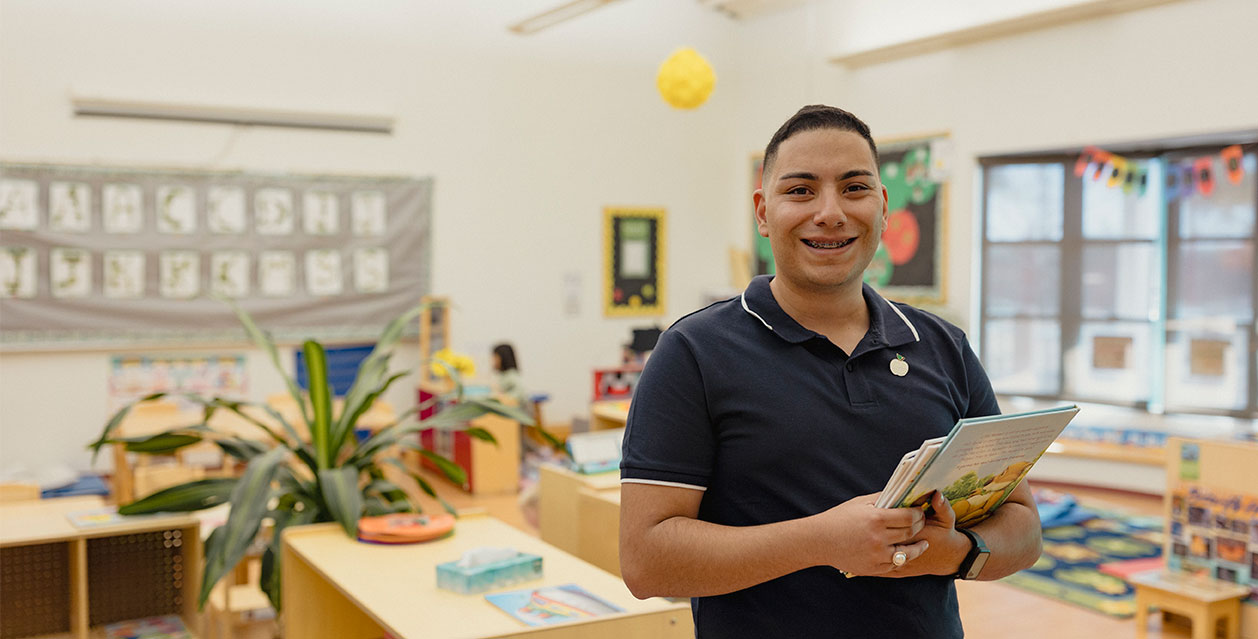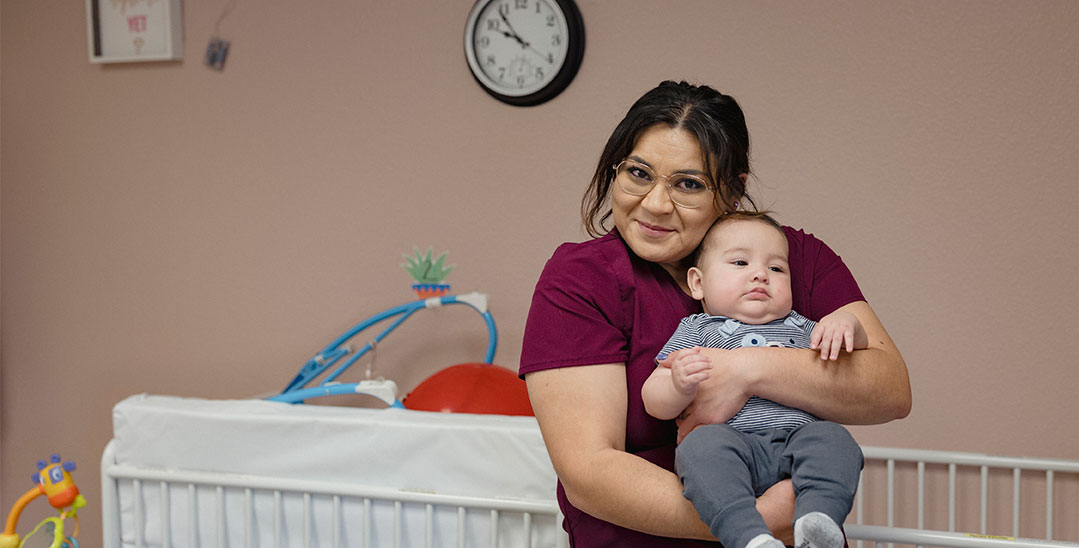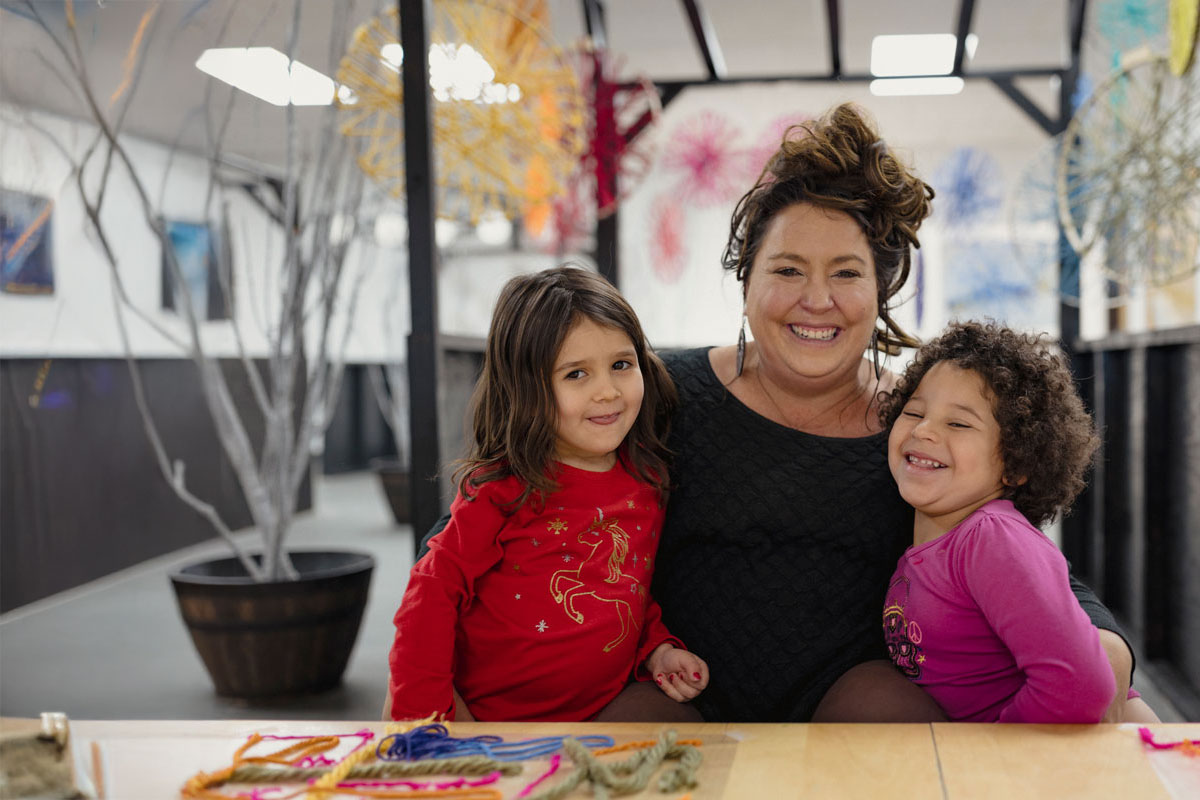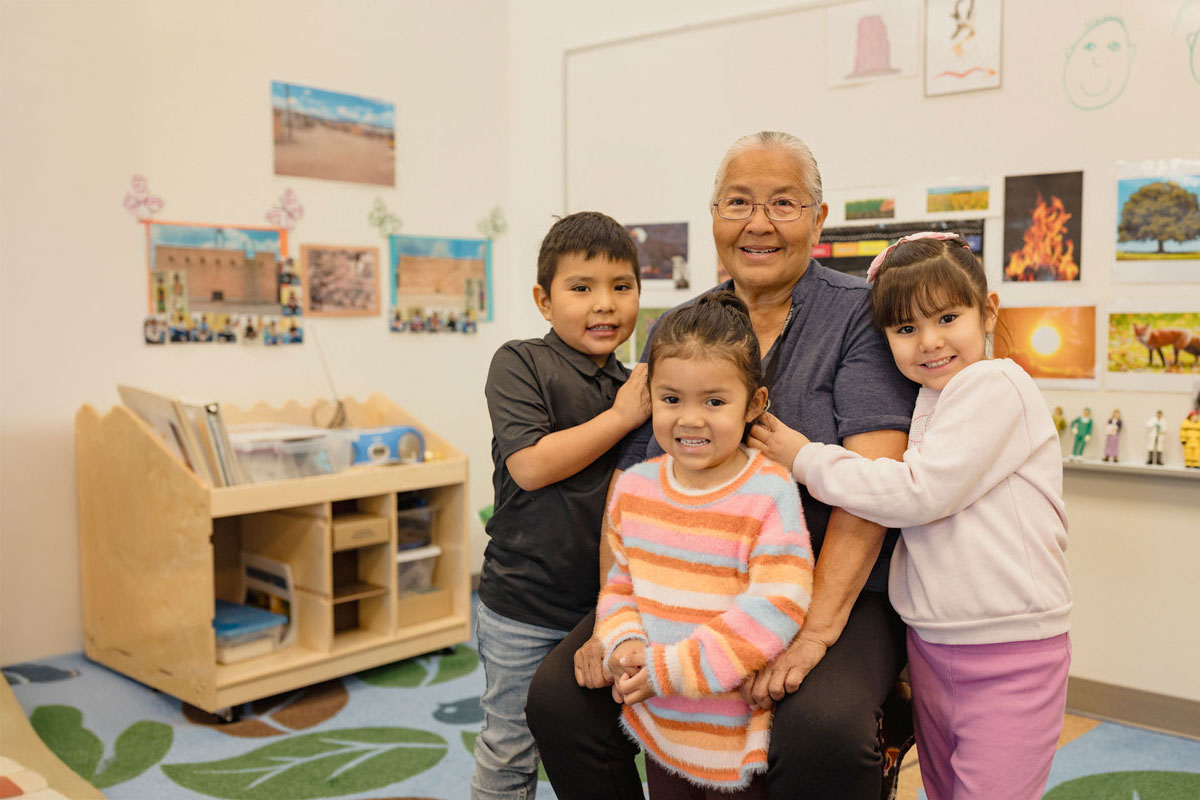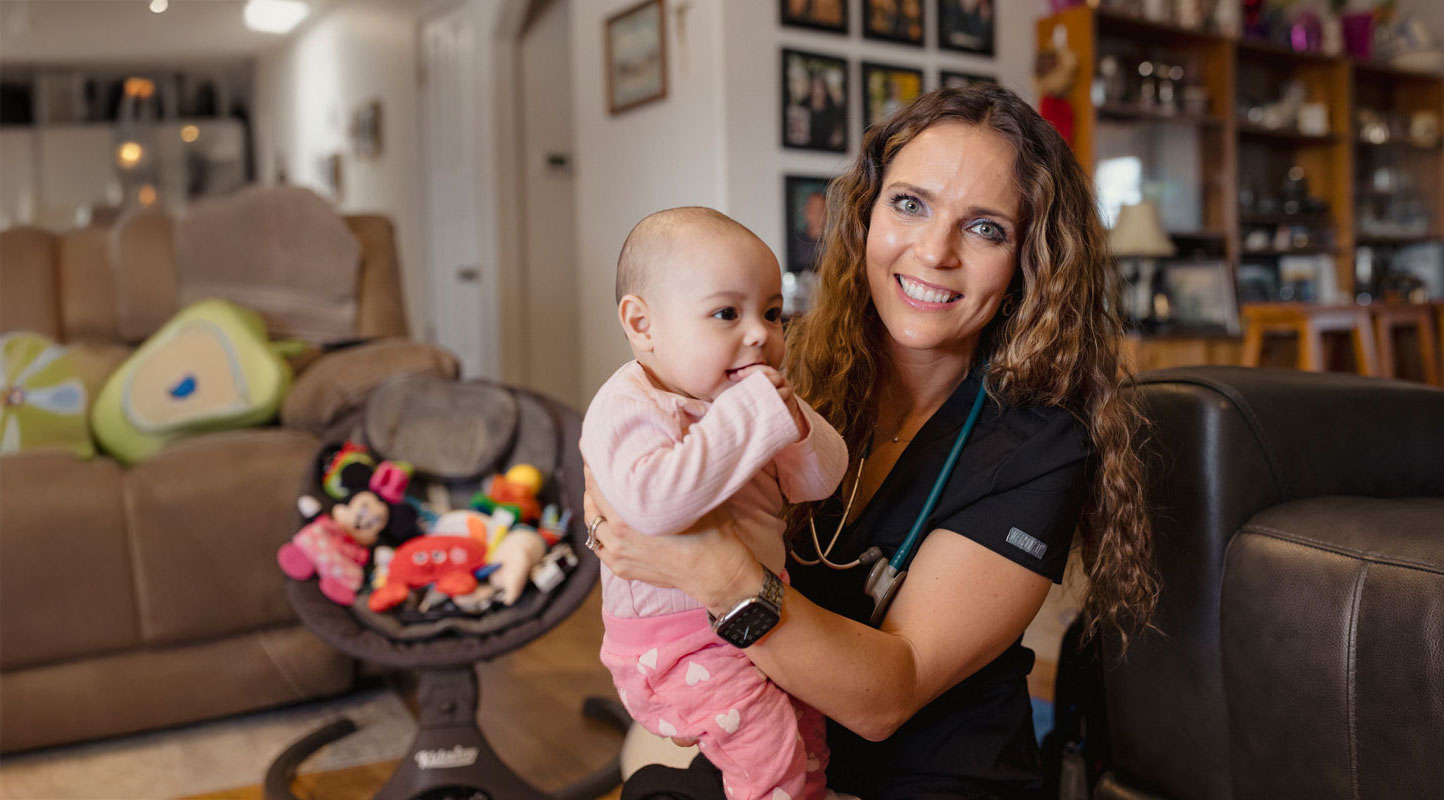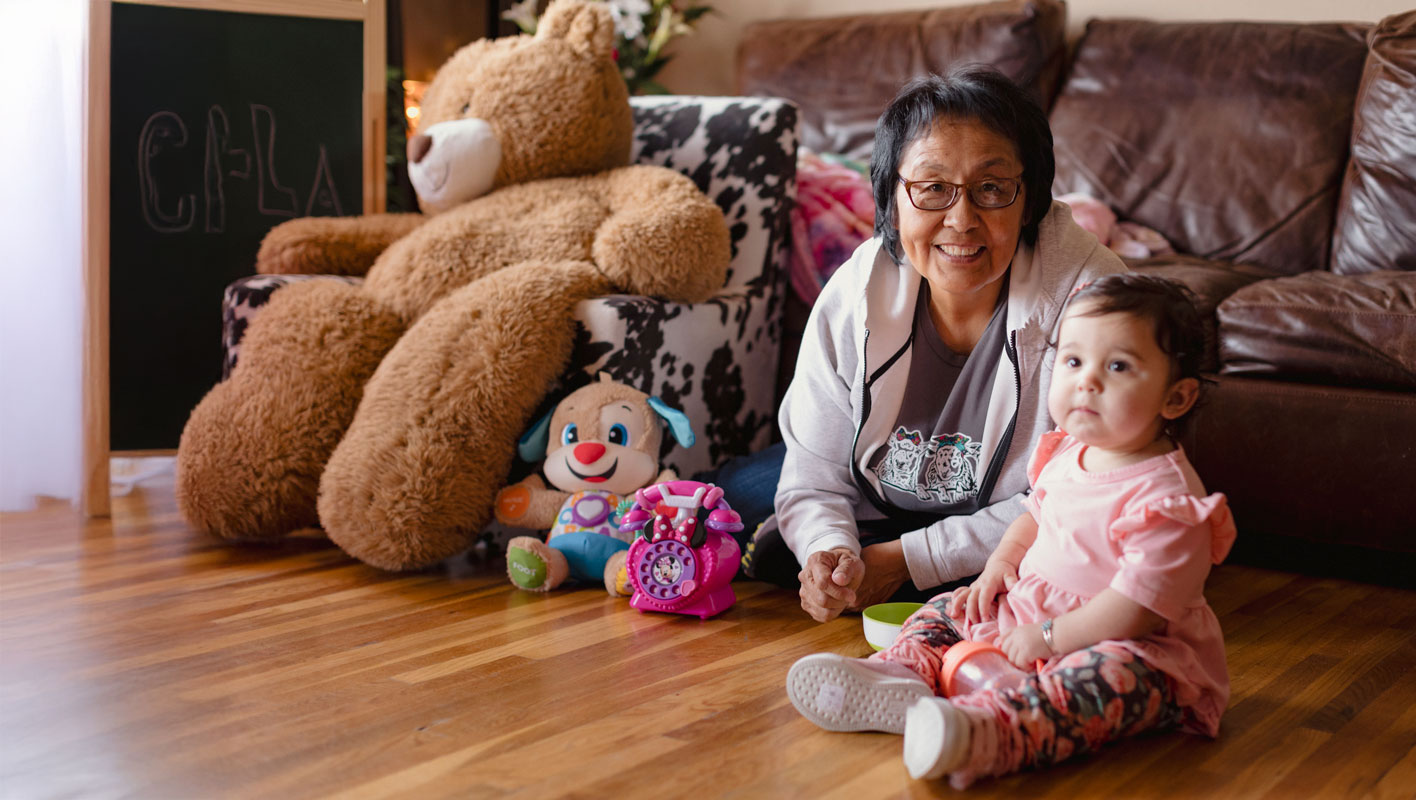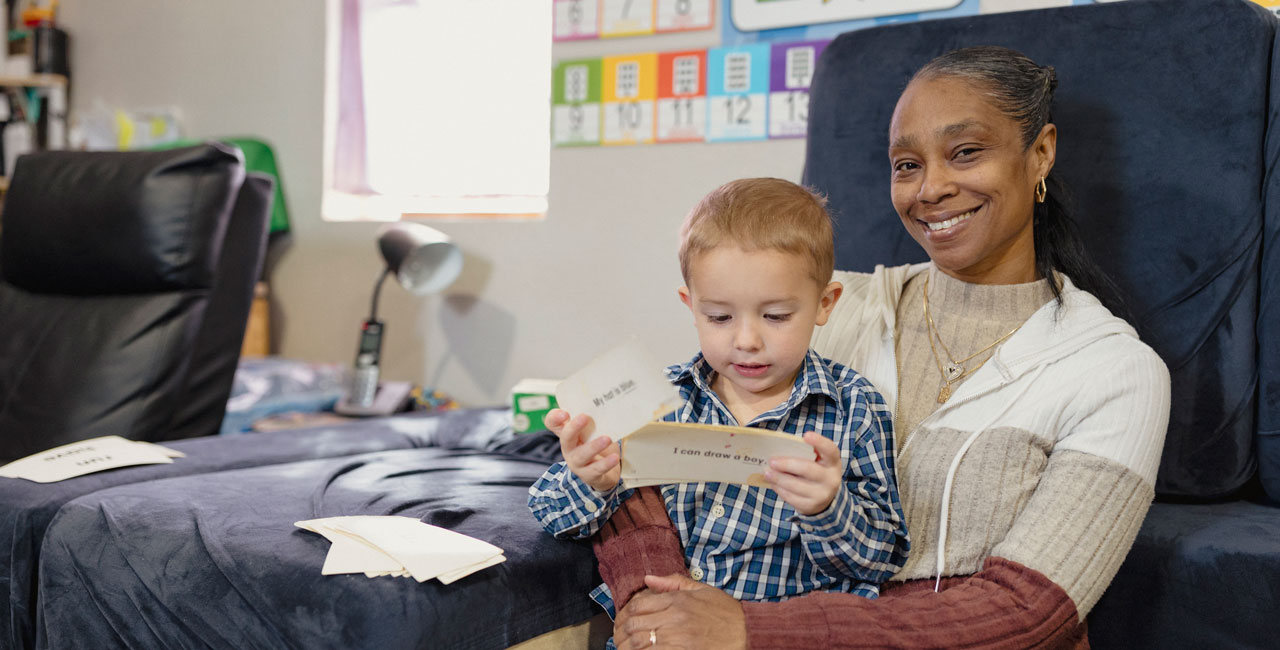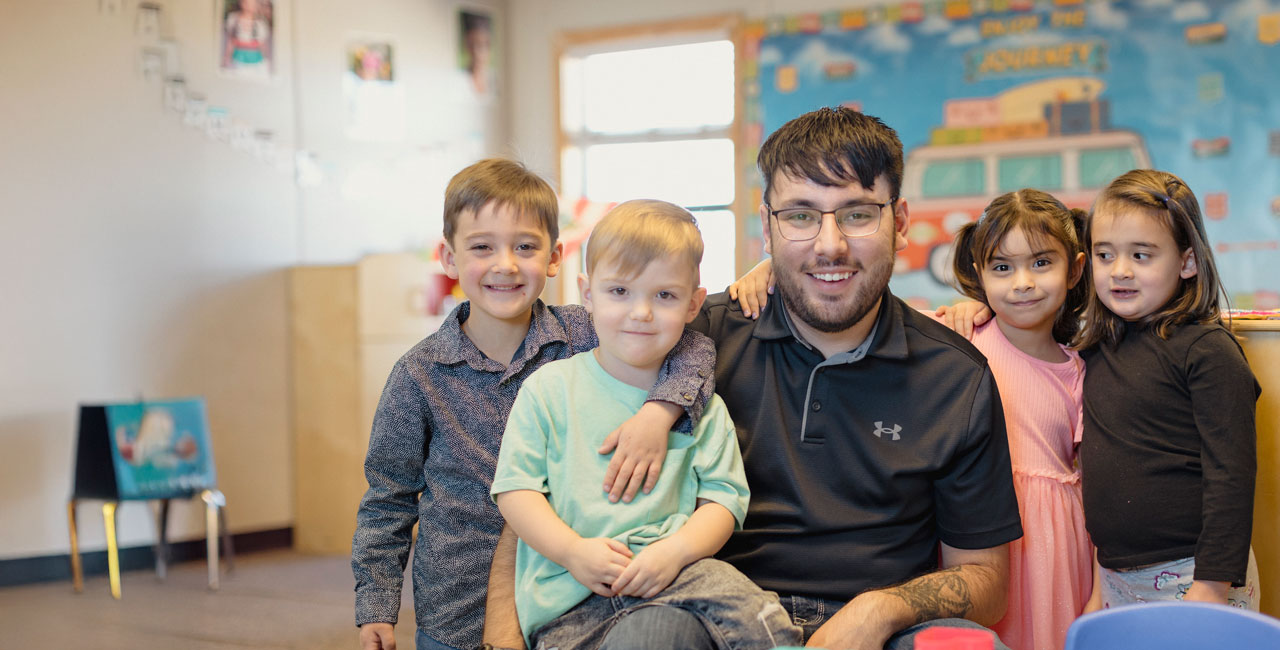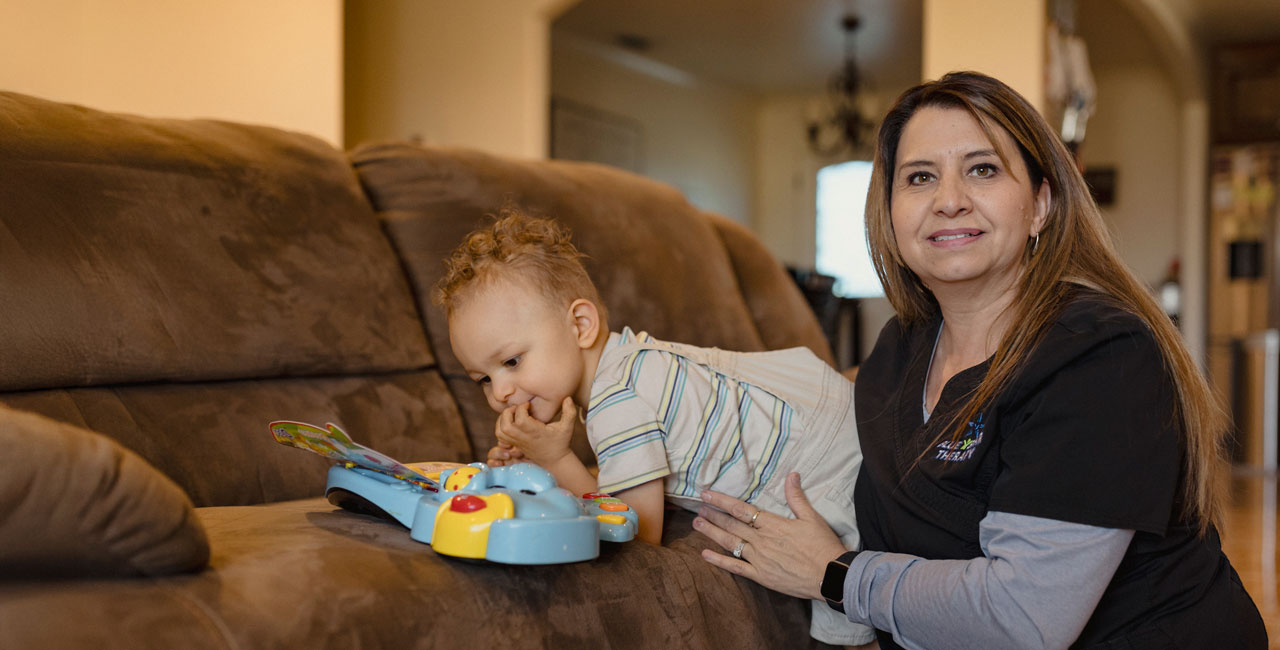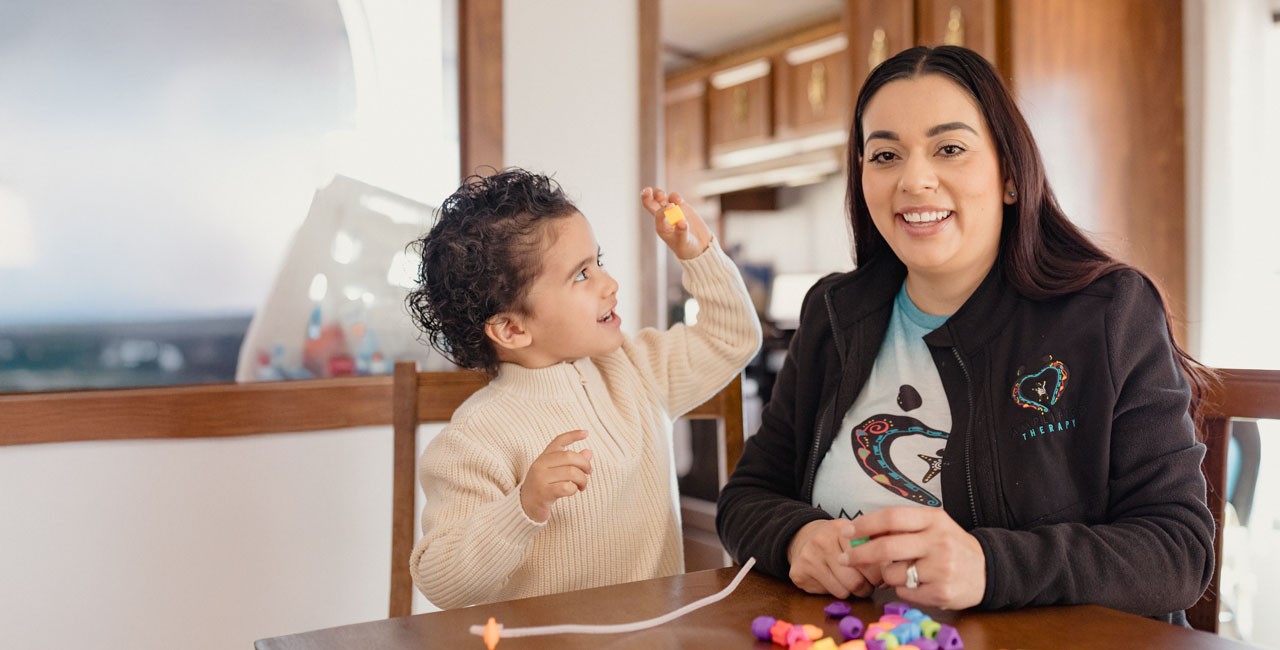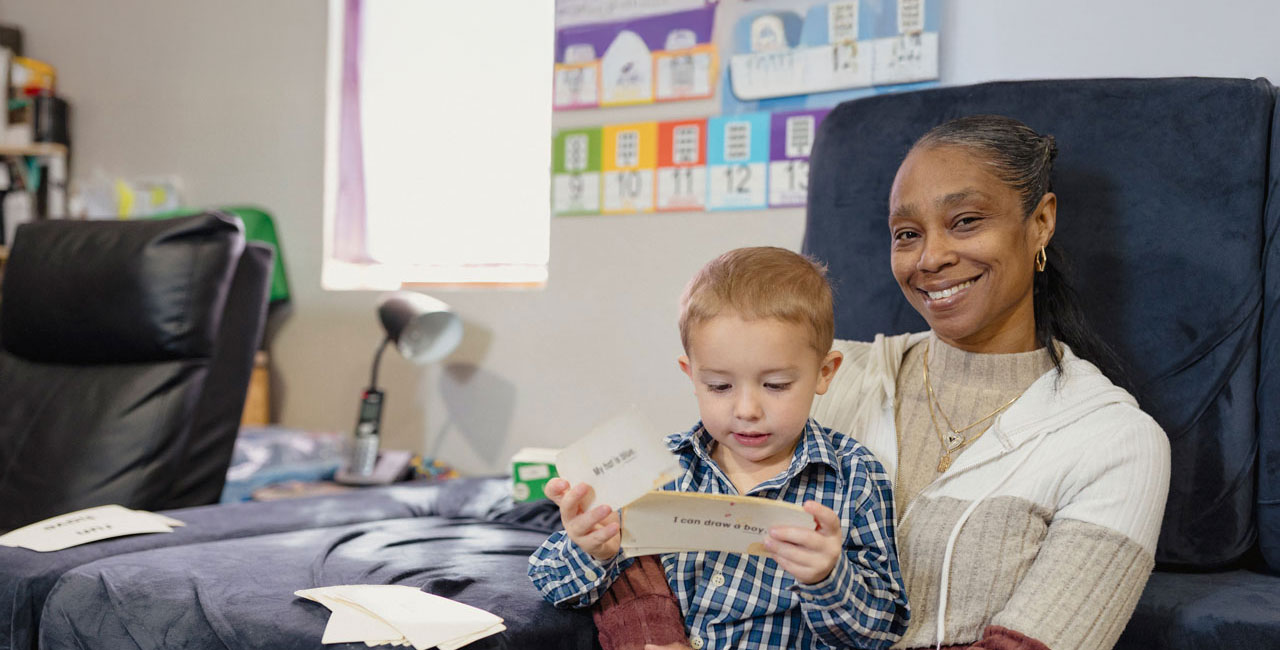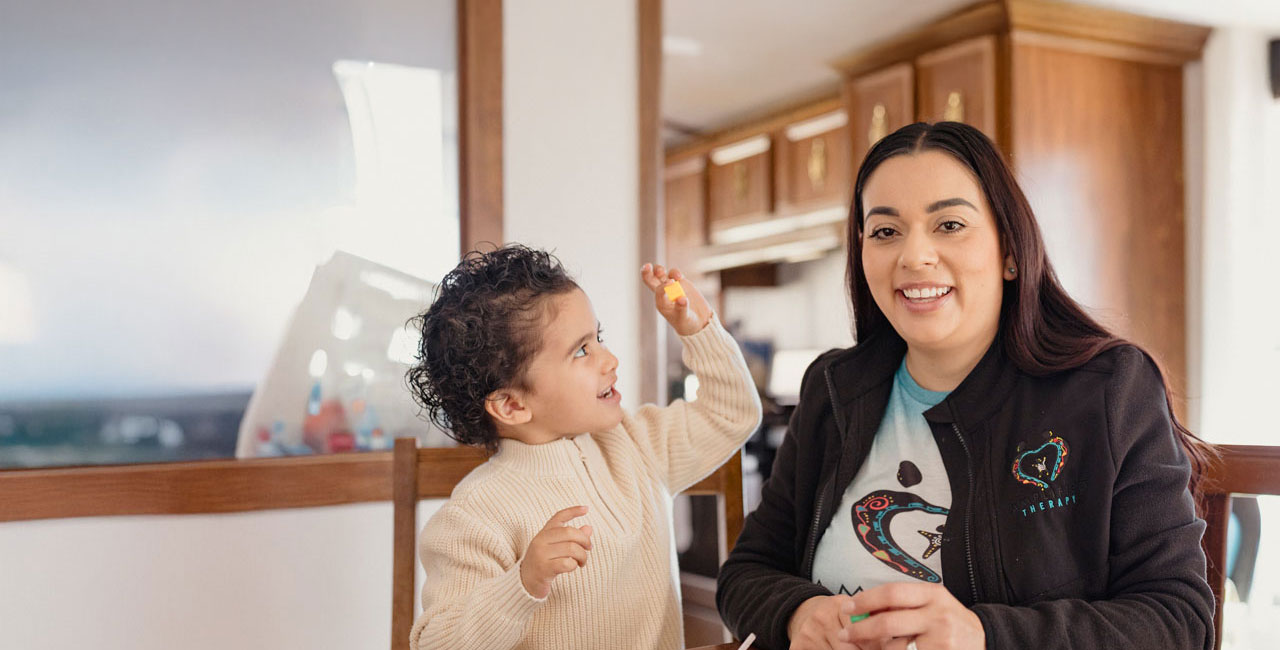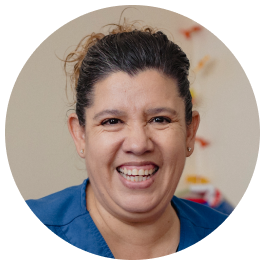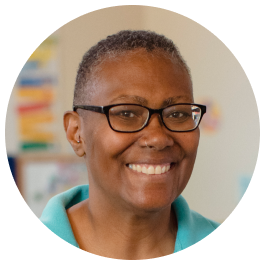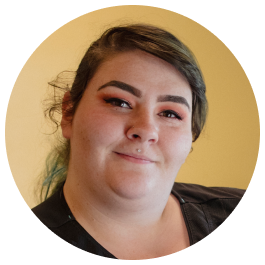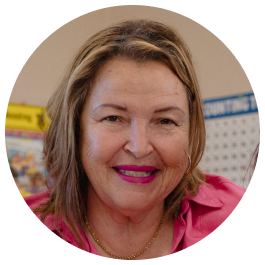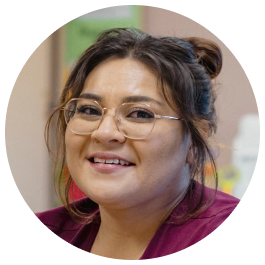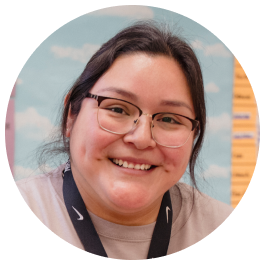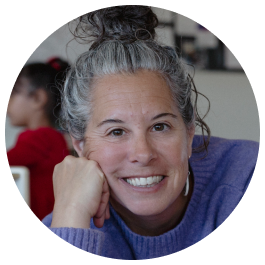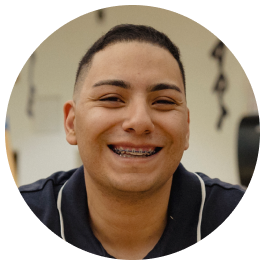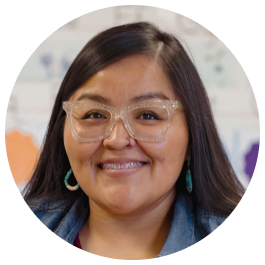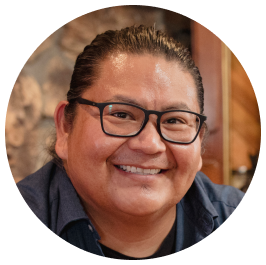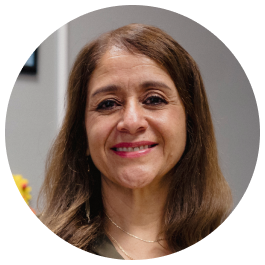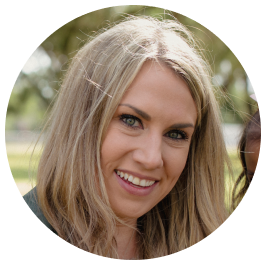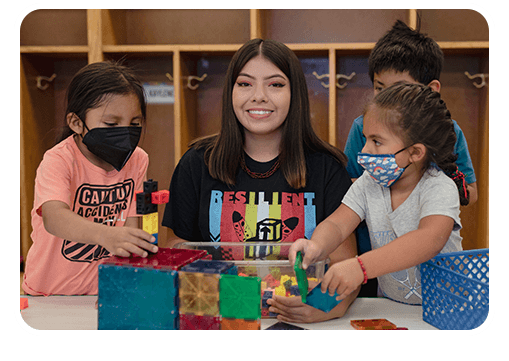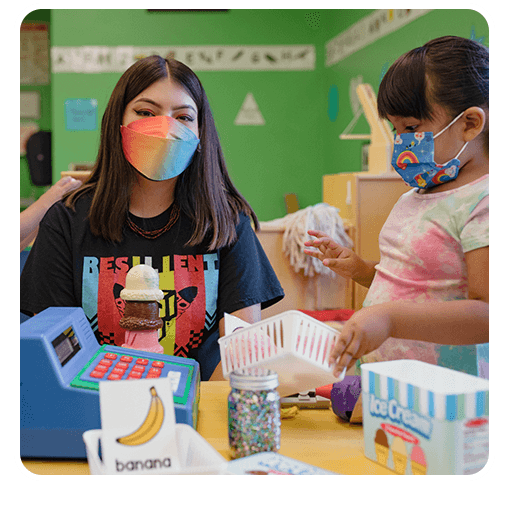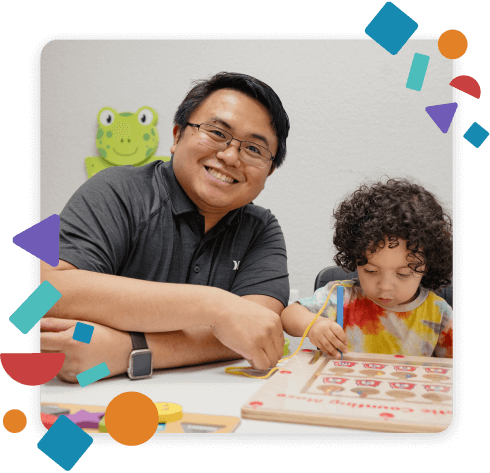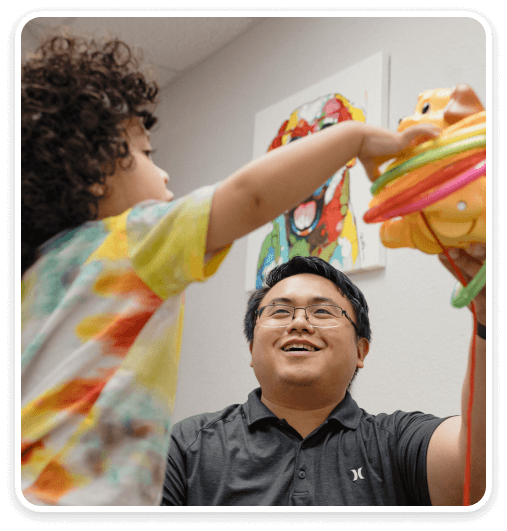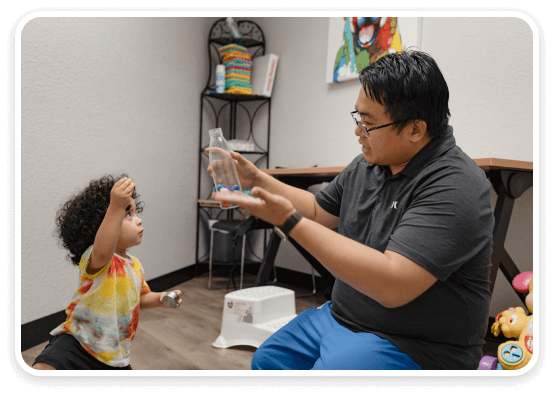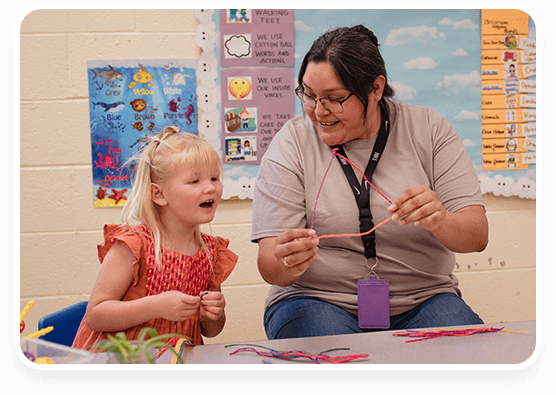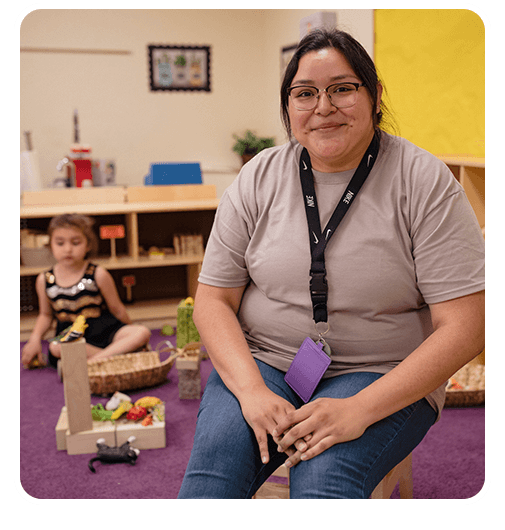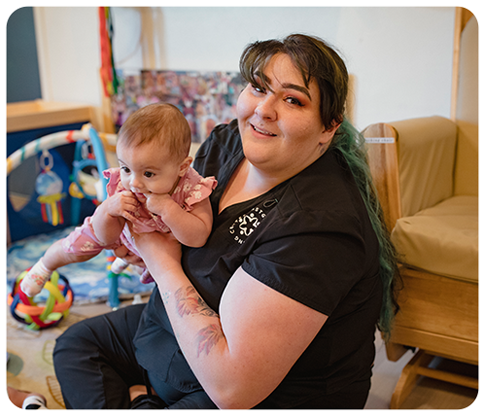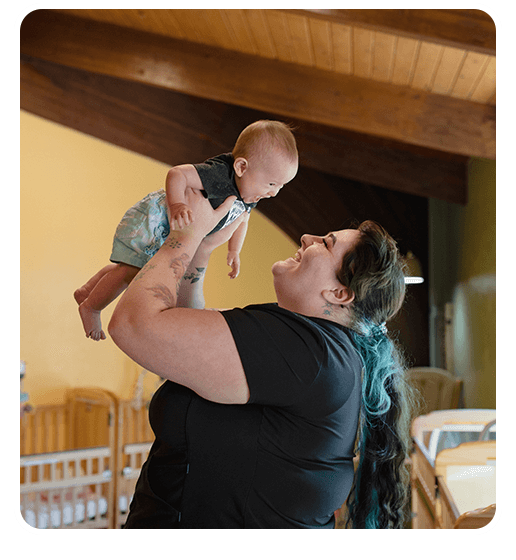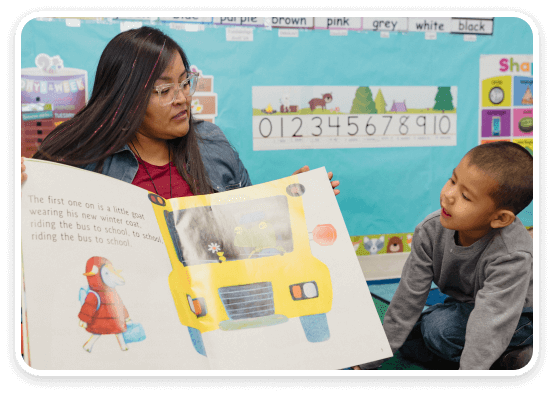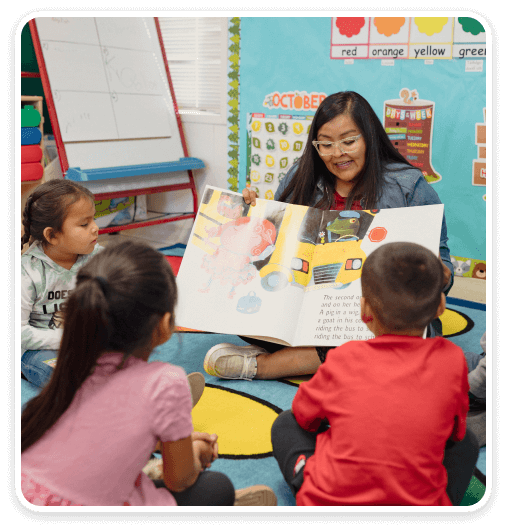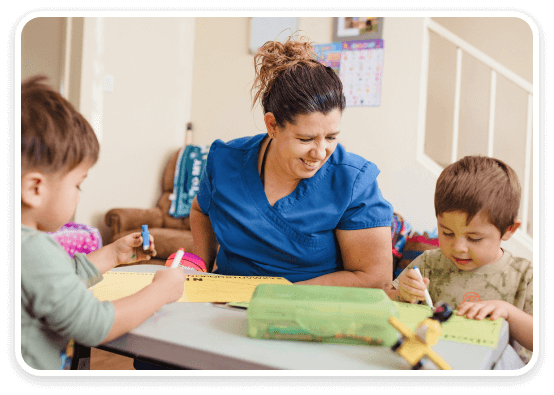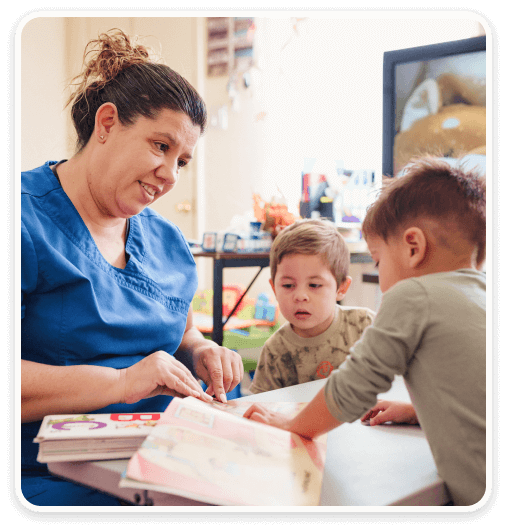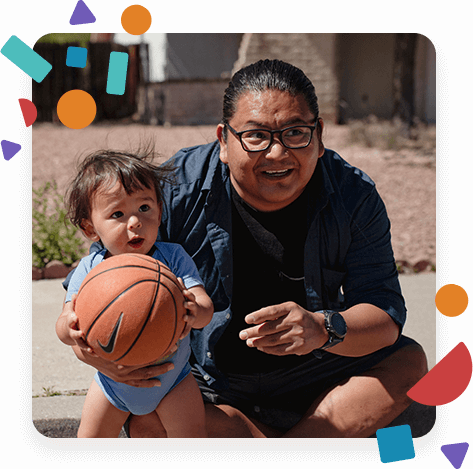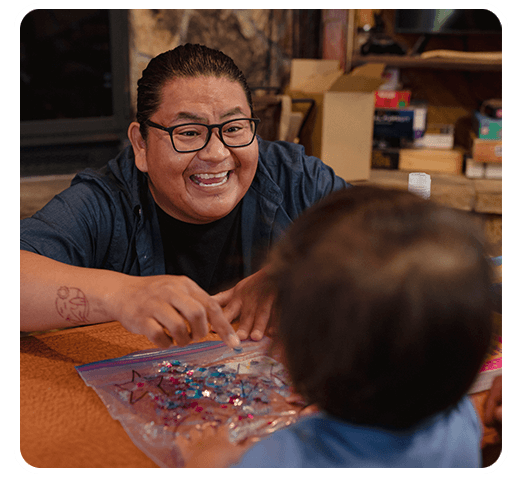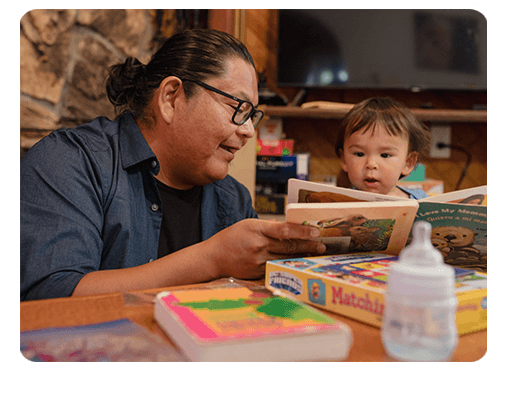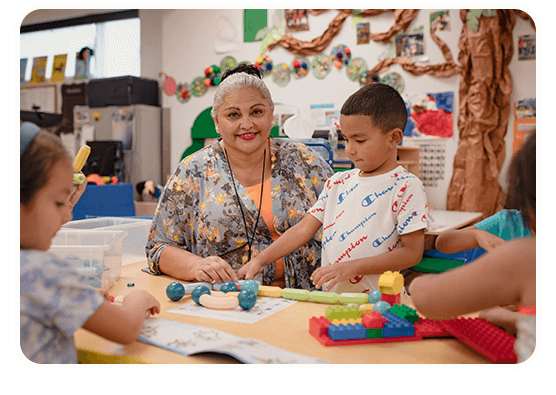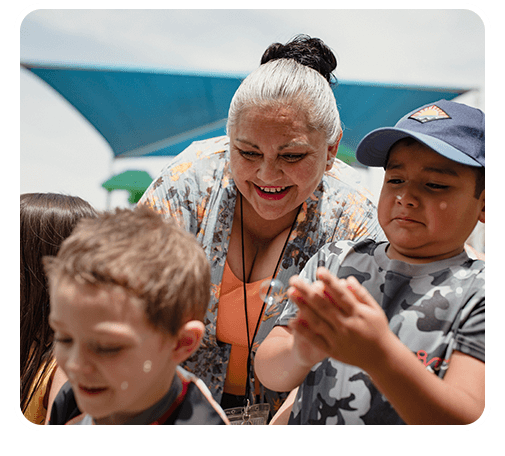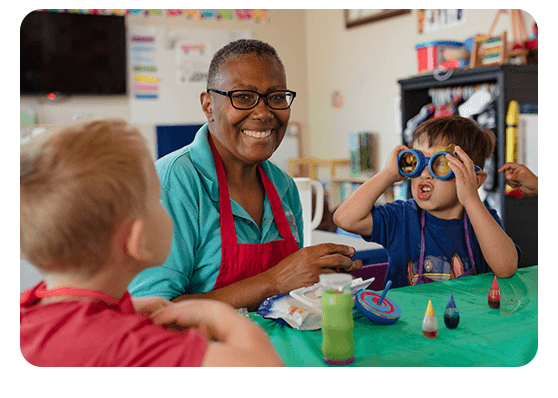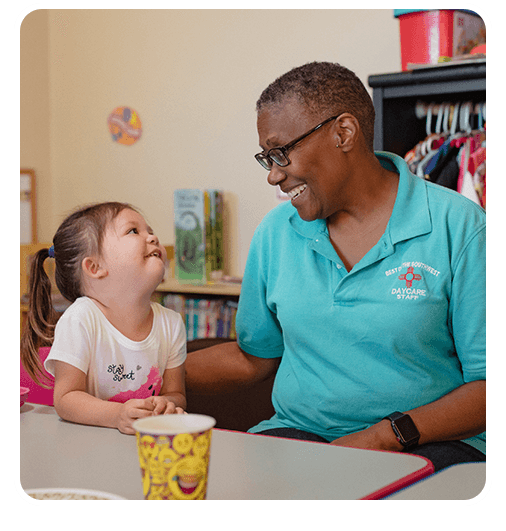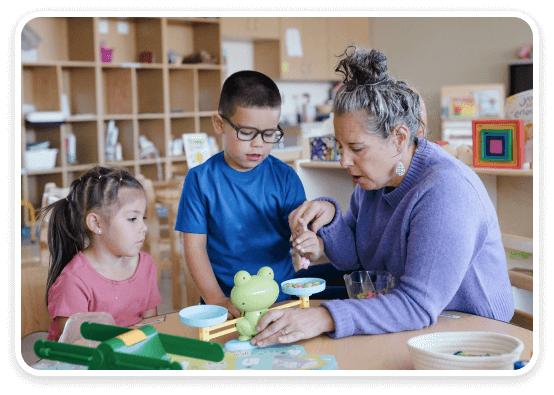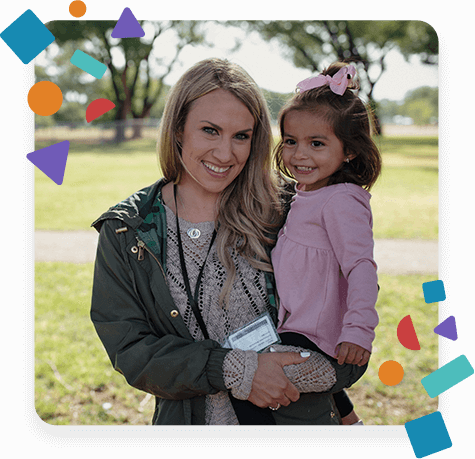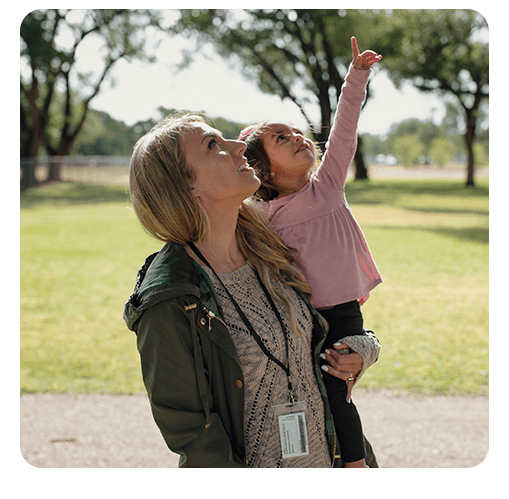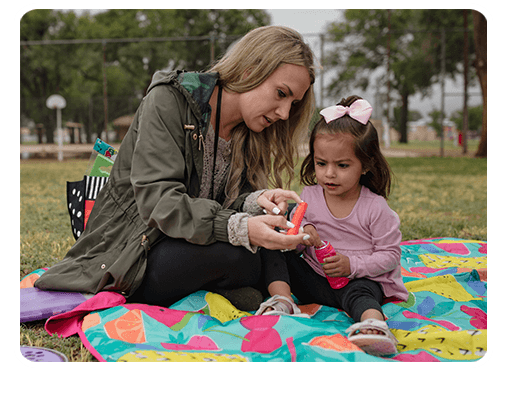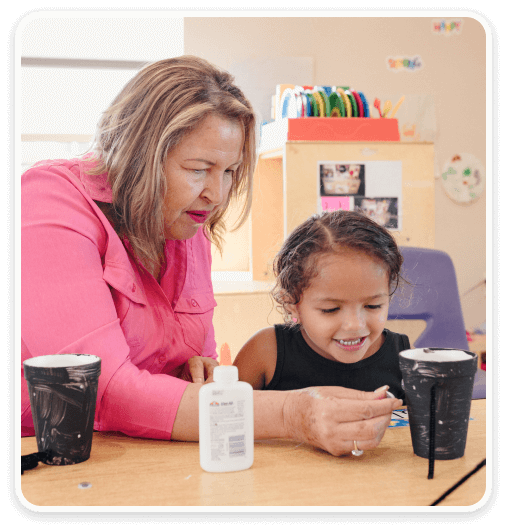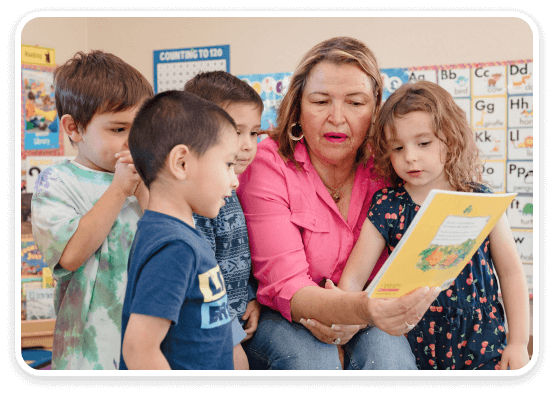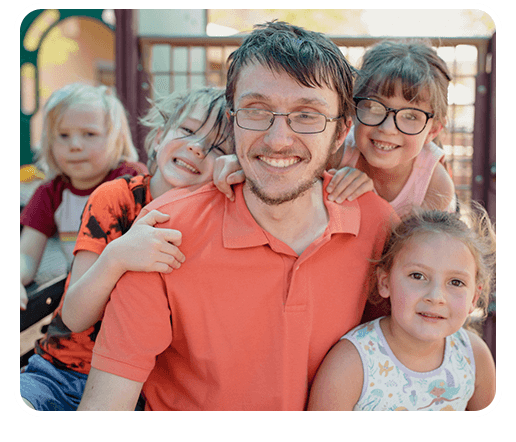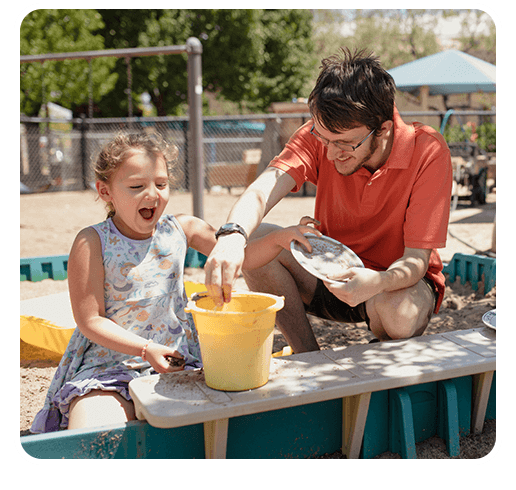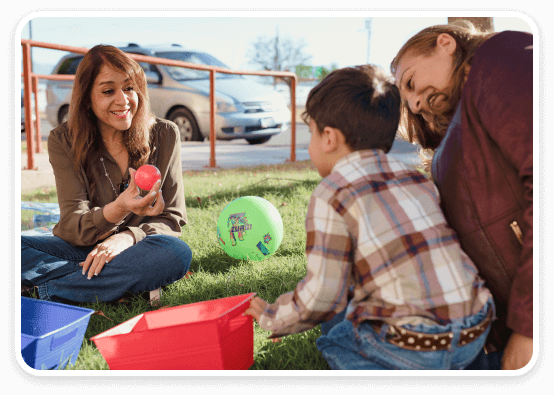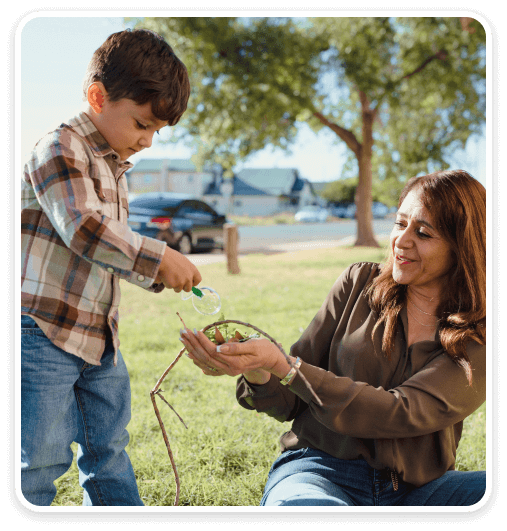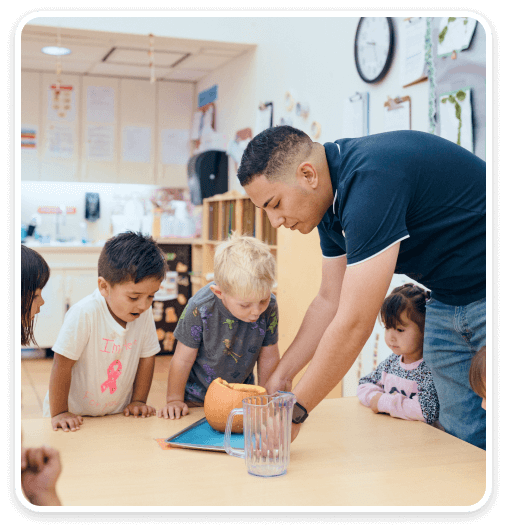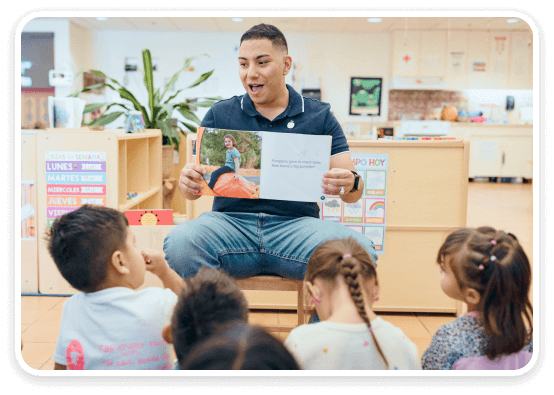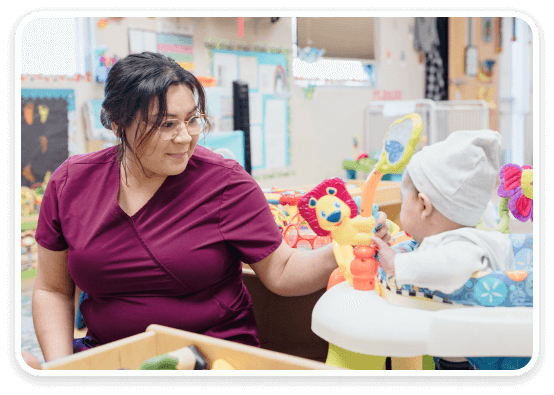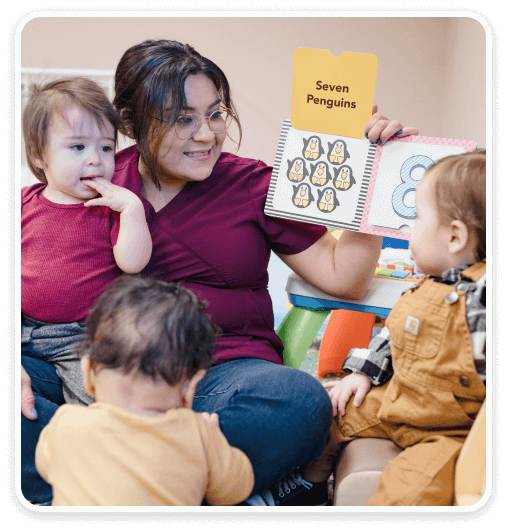Hear From New Mexico Professionals
Center-Based
Child Care
PreK
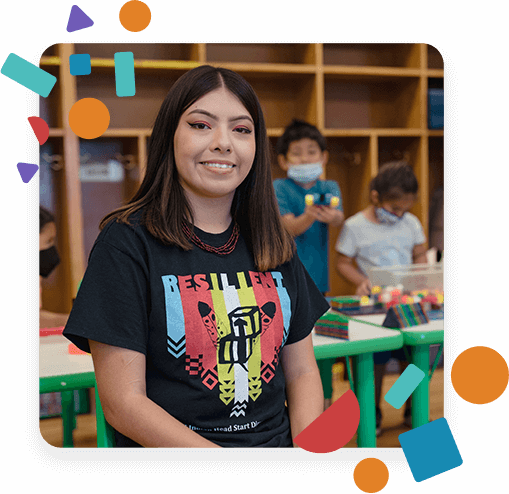
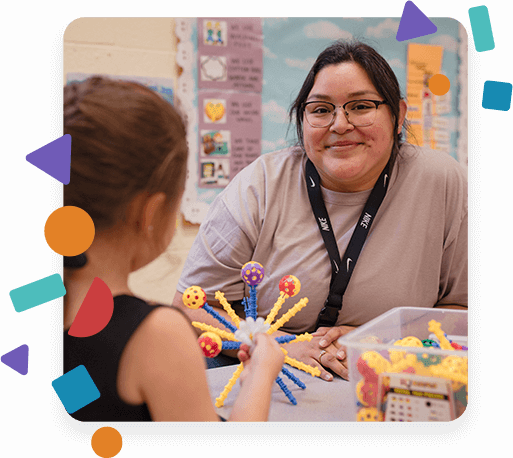
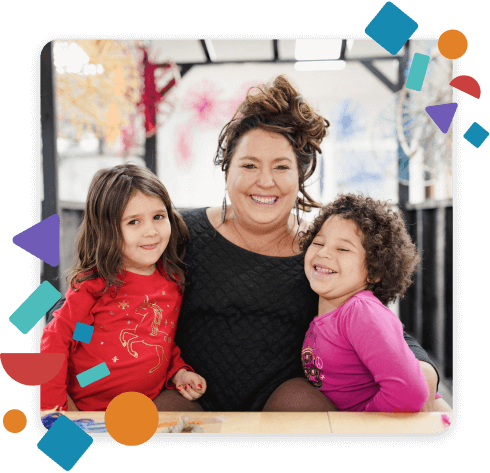
Early childhood education has always been part of Taylor Etchemendy’s life. She comes from a family of early childhood educators, and grew up helping in her mother’s early learning center in Taos. And her experience hasn’t all been close to home. After earning her undergraduate degree she taught young children in Ecuador, Asia, and Europe, including in Italy where she trained in the influential Reggio Emilia approach to early learning.
After earning her master’s degree in early childhood, Taylor came home to New Mexico. And ever since then, she’s been busy building new early childhood programs to serve the children and families of Taos. Her first center, INSPIRE Bilingual, has grown to four sites, with an emphasis on adding much-needed care slots for infants and toddlers. That growth has been supported by several state-funded grants to help providers offer more of the care that families clearly need.
I’ve opened a new school with full enrollment and a waitlist with every site I’ve opened,” Taylor said. “So there has never been any vacancies.”
And all those new slots are high-quality, too, offering a Spanish-English bilingual approach. Taylor herself is bilingual, and mentors the educators who work for her—many of whom started as parents in the program—to ensure they feel supported in delivering excellent care and education.
“It’s that feeling like you’re a part of something, understanding and being able to see the impact you’re making in children and families’ lives, which is tangible. Plus, children bring so much joy.”
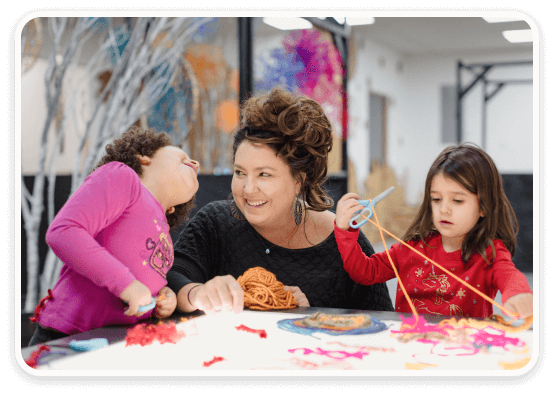
“In order to do that well, you have to have that mentorship in place, so that they’re learning alongside you, you’re creating an opportunity to reflect with them and understand why you’re doing the things that you’re doing, and then also asking them to sometimes push out of that comfort zone a little bit, too,” she said.
Her teachers also learn and develop through higher education, funded by the Early Childhood Education and Care Department’s (ECECD) scholarship program. Taylor said it’s an exciting time in early childhood, because the state is funding pay increases for professionals as they gain new degrees and expertise.
“It’s so incredible what ECECD has done with respect to opportunities for teachers and the wage lattice and all of that,” she said. “Our teachers, all of them have enrolled in classes and are taking full advantage of the scholarships, and then also being able to apply for the pay parity as they gain their degrees. That’s been really amazing, because 100% of our teachers have taken advantage of that.”
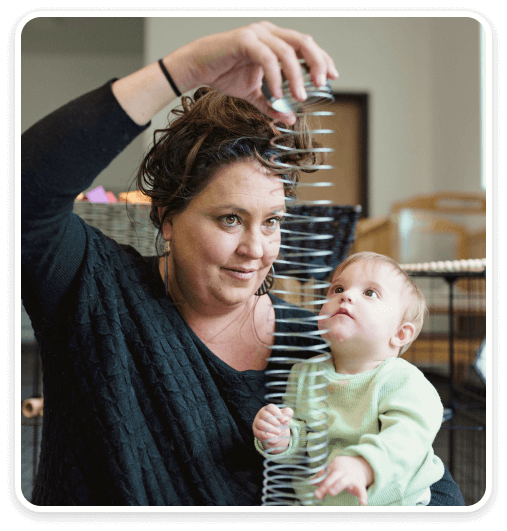
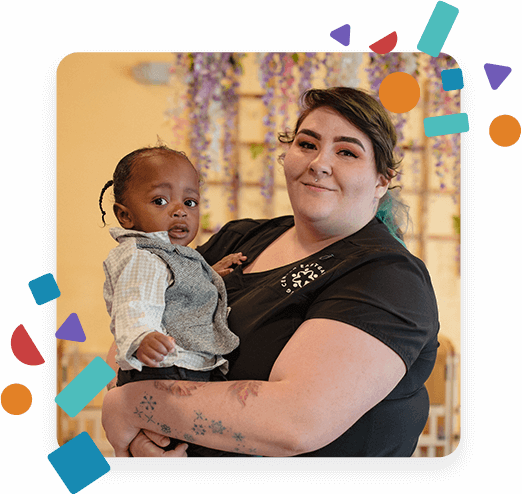
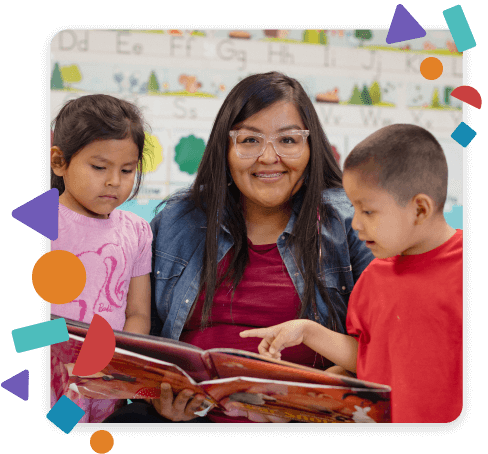
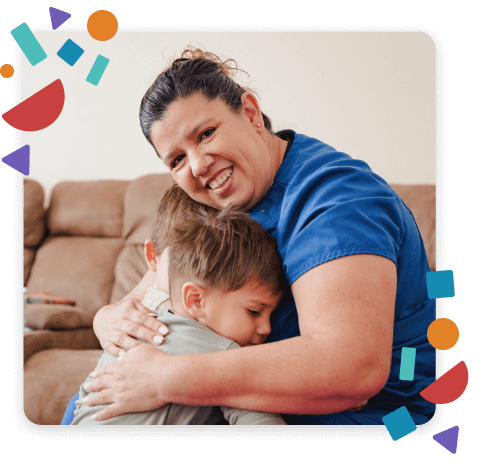
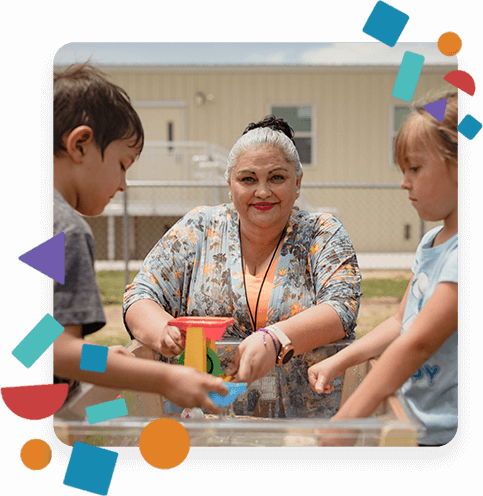
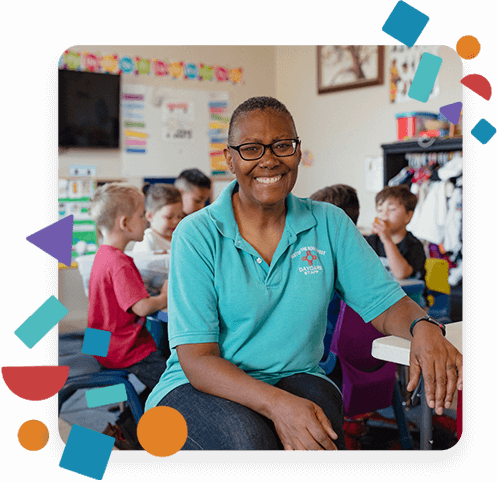
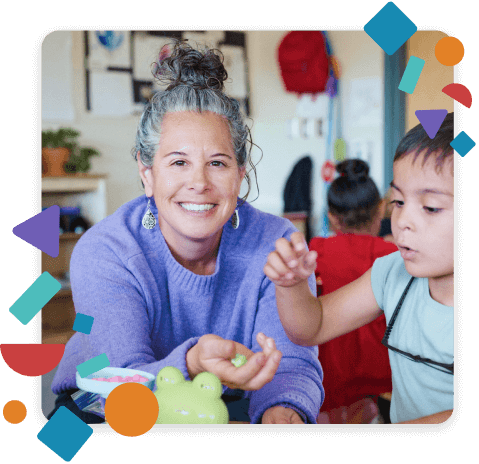
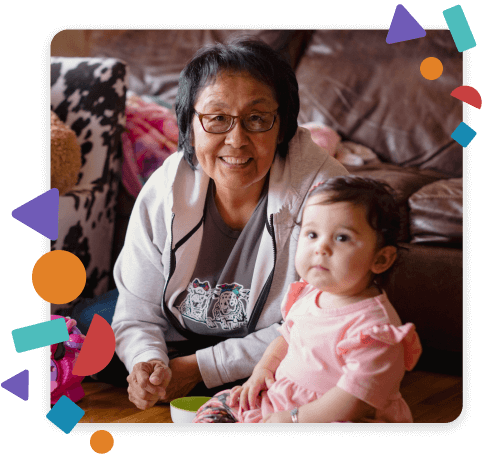
Toby Lee worked for years in the K-12 education system, but she had started to feel like she was connecting with children too late. By the time they started kindergarten, she could already see that some children were academically and socially behind. That’s when she saw a job posting for a home visitor, and thought maybe she could have more impact if she worked with families from the very start.
“I thought, well, maybe this is a good thing to try because of what I was seeing at school, with the young kids, 5-year-olds, coming to school with a lack of readiness skills,” she said.
That was more than 10 years ago, and Toby has been a home visitor ever since. She supports families with young children in her Gallup community by visiting them in their homes to offer guidance, connection to services, and a friendly ear. In that role, she enjoys making connections with families and seeing children grow.
“I really want [families] to build that foundation necessary for the kids to be better than we were, and better than they were. We want them to make a difference in their child’s lives.”

“I think for me, it’s about learning about families and building relationships with them,” she said. “Just watching the kiddos meet milestones and to see the interaction between baby and family—I think that’s what keeps me going, and I look forward to visits.”
Toby is bilingual, and can also provide supports to children and families in Navajo. She said families don’t always speak Navajo at home, and she likes to add some Navajo words to children’s early years. One of her strategies is to teach children the Navajo word for “no,” (which they start to use a lot!), so they’ll have a Navajo connection to a key word and idea. In recognition of her bilingual job skills, Toby has received New Mexico’s one-time bilingual incentive payment for early childhood professionals.
Sharing her language and culture with the families she serves can help Toby build trust and connection, especially for families who have experienced trauma or are reluctant to ask for help. She said that can make her role feel especially important.
“I might be the only person that they share information with,” she said. “I’m like an anchor for them. I show up all the time.”
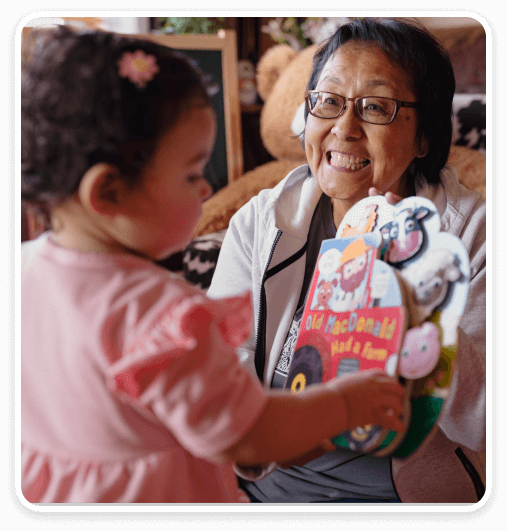
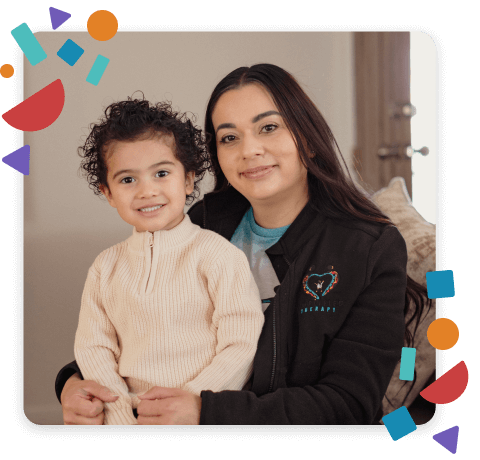
“I started to develop an appreciation for what the therapists were doing for the children and the families in our communities, and I realized I wanted to be a part of that impact.”

Mayra Mariscal’s career in early intervention started as a parent. Her son’s doctor referred her to Amplified Therapy for speech services, and she was amazed at how much progress he made with the help of a support team.
“When they first started coming, I was just, ‘wow’ with their services,” she said. “It seems like within a couple of months he was starting to say his first words.” From then on, she said, her son was on track and meeting developmental milestones, moving from words to sentences and learning to express himself.
It was during one of her son’s sessions that Mayra mentioned she was looking for a job. She had been home full-time with her son since the onset of COVID, and her son’s therapist told her about an administrative job at Amplified Therapy. Mayra was hired into that job, and felt drawn to the work her colleagues were doing for children like her son.
“I started to develop an appreciation for what the therapists were doing for the children and the families in our communities, and I realized I wanted to be a part of that impact,” she said.
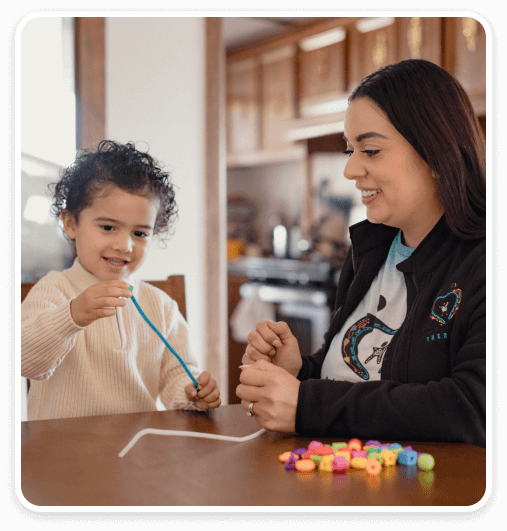
Inspired by her colleagues, Mayra decided to go back to school. She plunged in full-time, balancing work and school and family, and earned an associate degree that qualifies her as a speech language pathology assistant. She’s now in the final semester of a bachelor’s degree in communication disorders, supported by New Mexico’s Opportunity Scholarship.
Along the way she was offered a job as a developmental specialist at Amplified, which means she now supports families with their children’s development in the same way that her family was supported. Mayra speaks Spanish and English, which makes her especially well-positioned to serve Spanish-speaking families in Deming and nearby communities.
“I’m just fortunate enough to be able to provide these services for them in English and Spanish,” Mayra said. “I do like to talk to them in English and Spanish and they do pick it up—kids are like sponges.”
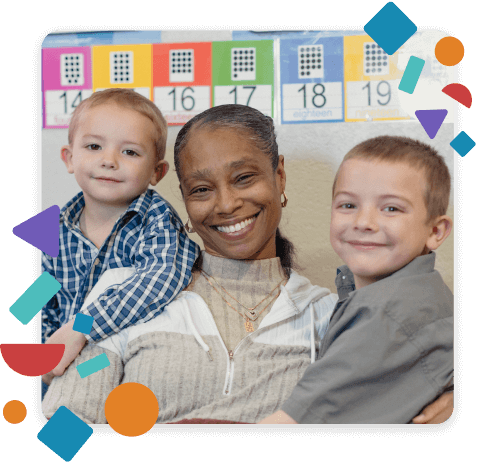
“The ability to create your own program and your own environment that will work for you and the child and the parent. It’s not so formal. It’s home. You don’t want home to be … like a facility. You want it home.”
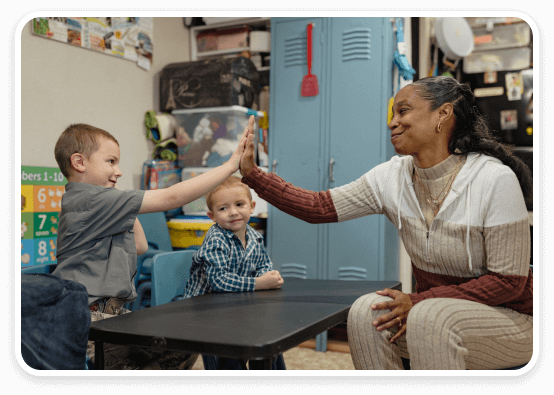
JeNette McDonald prefers to work for herself. In her more than 20 years of experience providing child care, she has nearly always run her care business out of her own home. She likes that she can create a cozy, home-like environment for kids of different ages. Plus, you can’t beat the commute.
“It’s not stressful to have to get up and get out to race to work,” she said.
JeNette (or “Auntie Nette,” to the children she cares for), has cared for children since she was a teenager. She nannied and provided care during church services when she was in high school, and always knew her path would involve working with young people.
She first started running a home-based child care after she became a mother. She wanted to care full-time for her own child, and found she could earn a living staying home with him and caring for other children, too. As she built her business, she also built a community of families and the children she cared for.
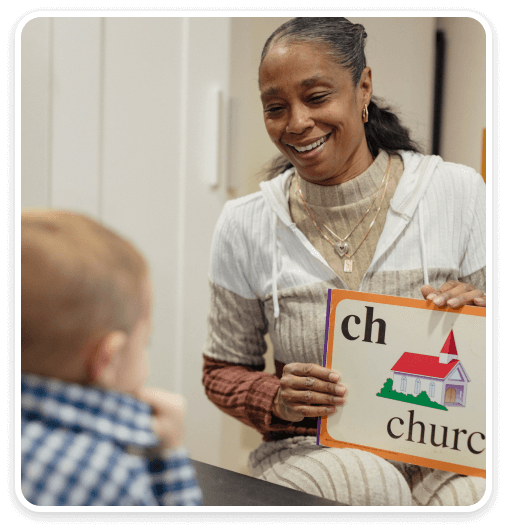
“No one ever left, or even if they left, they always came back,” she said. “We were family, at that point.”
JeNette said running a home-based child care gives her the freedom to work for herself. She described the benefits of home-based care this way: “The ability to create your own program and your own environment that will work for you and the child and the parent. It’s not so formal. It’s home. You don’t want home to be … like a facility. You want it home.”
For JeNette, watching children grow and develop is the best thing about her work.
“Seeing kids excited and being proud of themselves when they learn how to do new things,” she said. “That’s why I like it when they’re so young. Because they’re learning everything, from walking, the potty, learning of course their letters, and just growing.”
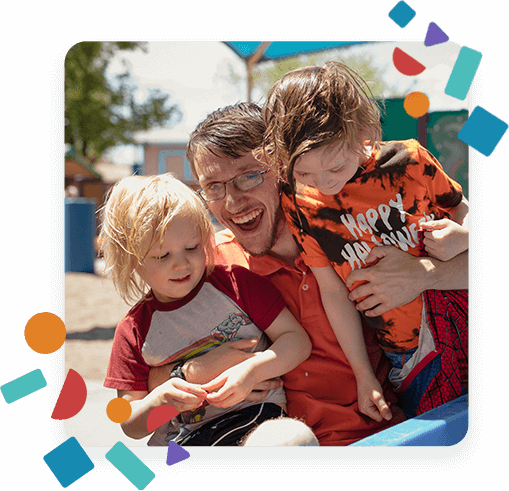
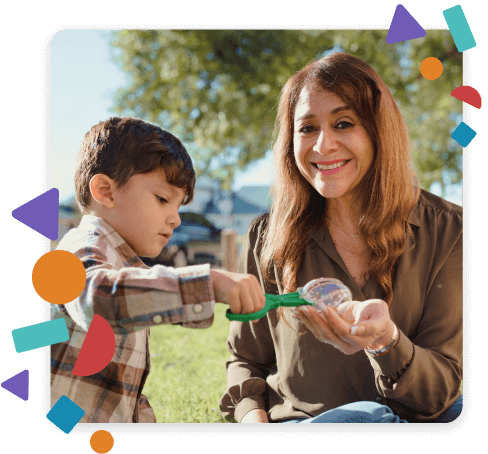
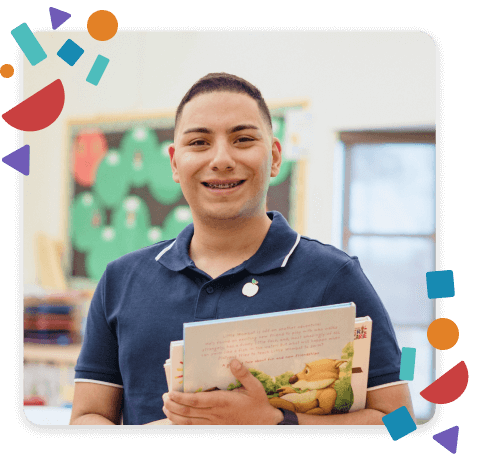
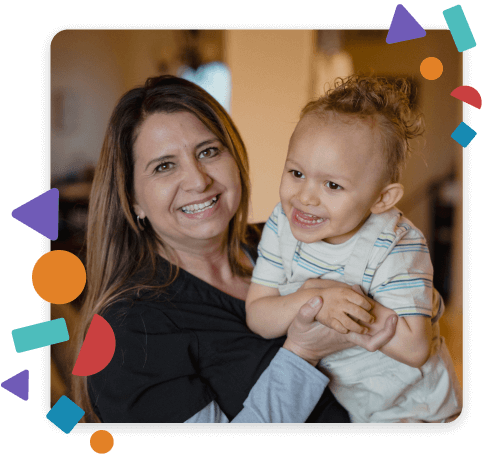
Elsa Paez has worked as an occupational therapist in many different settings over the years. She has worked in the public schools, done home health, and practiced in a clinic. But providing services through the Family Infant Toddler (FIT) program is her favorite.
“I’ve done occupational therapy for a long time and in different settings, but early intervention has always been my passion,” Elsa said. “I just love working with the babies and the families, and I feel like I see so much progress so quickly.”
Elsa is also an entrepreneur. After years spent working for other agencies or employers, she decided to start her own agency and try working for herself. And so, with some support from local mentors and from the Early Childhood Education and Care Department, she opened Blue Star Therapy and in 2020 was awarded a contract starting to provide FIT services for the state.
The journey hasn’t been without its challenges. Elsa said she is an occupational therapist, not a business person. So when she first started out, she was figuring out processes like payroll by herself. Over time, though, she has grown her administrative team so she can focus more on leadership and directly serving families. Elsa still conducts evaluations and supports families directly, especially those who are Spanish speakers and benefit from her skills as a bilingual provider.
“To work with families, work with children, and have that flexibility of not having to be in the same spot every day, I think that’s rewarding.”
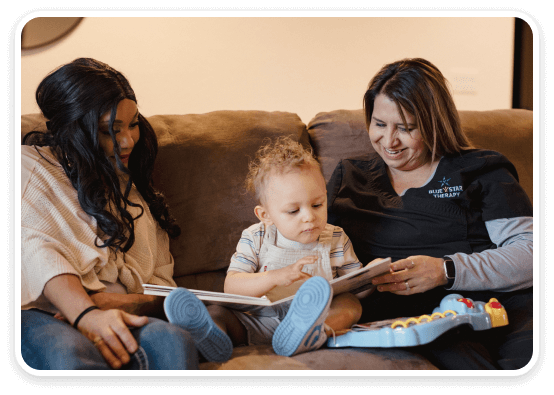
Elsa grew up speaking both Spanish and English, and said she sees benefits to children and families of serving them in their preferred language without having to use translation.
“I think it’s very, very important for someone to know that we’re able to serve them in their language and not have to feel like everything has to be translated,” she said. “I feel like they can open up and we establish rapport a lot better when we’re able to talk with them and discuss things in their language.”
For anyone considering a career in early intervention, Elsa said to give it a try, and you’ll likely be hooked.
“Most people that have done early intervention, they really, really love it,” she said. “I think that if they attempt or give it a try, they would be really surprised at how much joy you get out of working with the families and children.”
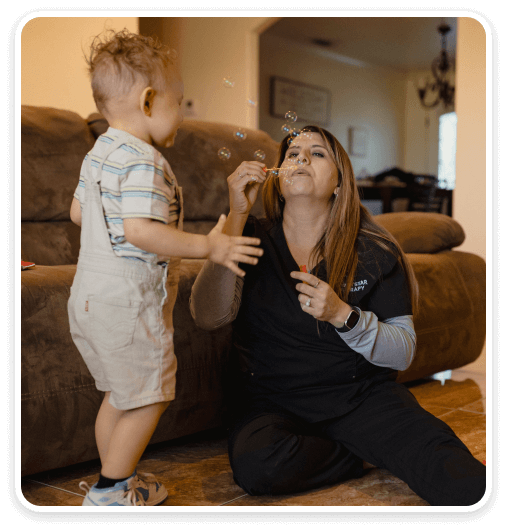
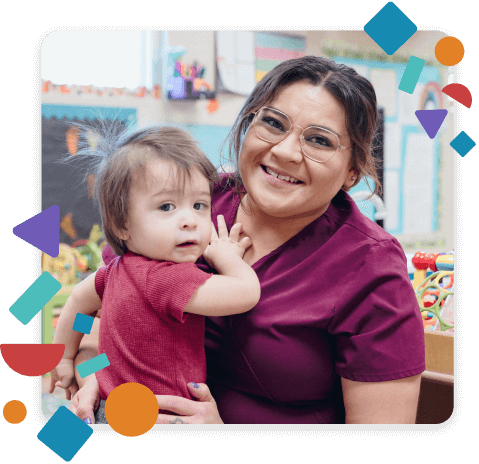

“I just really love what I do. I’m very, very grateful to have found this.”

As a nurse, Skye Sego always had a passion for pregnancy and new babies. But she didn’t fully find her calling until she went on a home visit.
“I always thought in the clinic setting, and even in the hospital setting, you can only do so much for a family because you can’t really see what’s really going on,” she said. With home visiting, she said, she can build a trusting relationship with families for years, and can help them tackle bigger challenges.
“They allow me in their home and they allow me to be part of their life and learn about their relationships and their struggles and also their wins,” she said. “It’s really incredible. I feel like it is more of a calling than a career or a job.”
Skye has worked for more than ten years as a home visitor for the Nurse Family Partnership program. She serves families in Valencia County, where she also lives, and said she is glad to have discovered home visiting as a nursing career path.
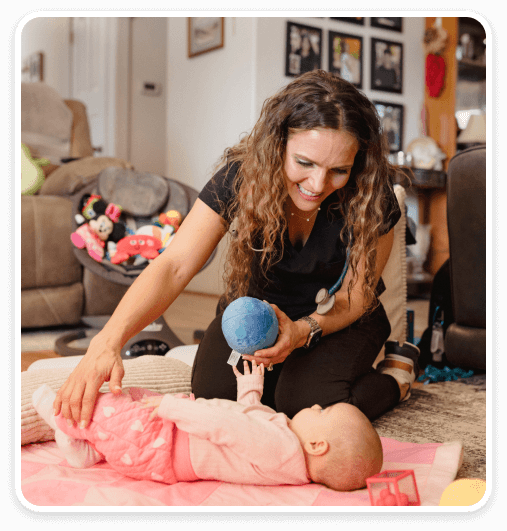
“It’s a different type of nursing, that I didn’t ever know about,” she said. Skye said she wasn’t taught about home visiting in nursing school, and didn’t know it existed as a career path until a professional mentor told her about it. But once she went on a home visit, she was hooked.
“It feels so rewarding, it fills my soul,” she said. “It feels like I’m actually maybe making a difference with the families that we work with, and I feel privileged for them to allow me in their life.”
As a nurse home visitor, Skye builds long-term relationships with families from pregnancy through the first few years of children’s lives. In that role, she visits families in their homes and supports children’s health and development, while also connecting families to other supports and services.
“It’s neat to see them set goals and meet their goals, to really improve their health or even go back to school or get a job, or sometimes get off of government assistance,” she said. “It’s a really rewarding job.”
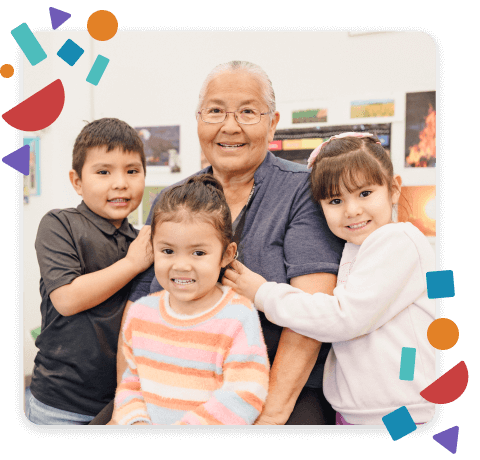
“If I see them graduate from high school and I taught them at Head Start, that’s a big accomplishment. We always say, at the Head Start, we put a good foundation for that child.”
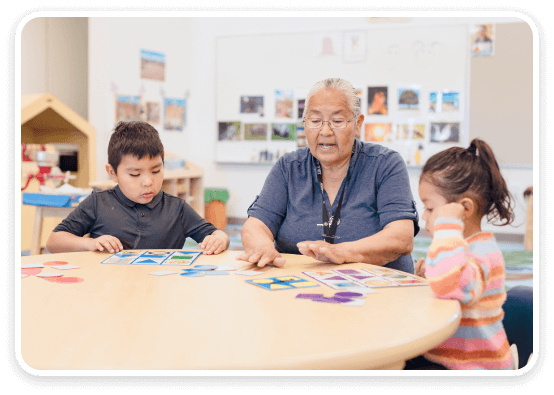
Every time Jacqueline Toledo-Magdalena teaches a young child to speak in Towa, she is helping to keep her language and culture alive. For more than 25 years, Jacqueline has taught at the Walatowa Head Start on Jemez Pueblo. Her program was among the first early childhood programs in the nation to teach entirely in the Pueblo’s traditional Towa language, sometimes called Jemez or Hemish.
“It makes us stronger as a community,” Jacqueline said.
The Walatowa program’s connection to Hemish culture runs even deeper than language. Jacqueline and her colleagues have built a whole curriculum over time, connecting Head Start learning standards with their cultural traditions. The students learn through activities like making cornmeal, and by attending activities in the village.
“The community is teaching them,” Jacqueline said, describing how children learn through attending cultural events. “So when they go back to the classroom the next day we ask them, ‘What did you observe? What did you learn? What did you hear? What words did you learn?’”
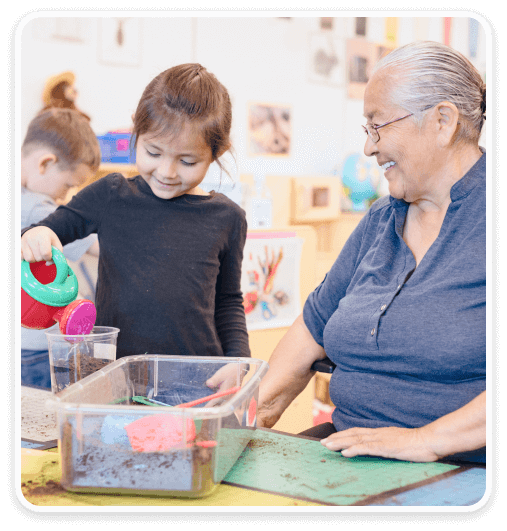
For Jacqueline, early childhood education was a calling from early in her life, although she tried multiple other careers before finding her place at the Head Start. Since then, she’s earned an associate degree in early childhood and has taught a whole generation of the Pueblo’s children. Seeing those children grow up and graduate from high school, she said, is a major reward of the job.
“If I see them graduate from high school and I taught them at Head Start, that’s a big accomplishment,” she said. “We always say, at the Head Start, we put a good foundation for that child.”
That early foundation can lead to future opportunities for the children she teaches, and can help ensure they grow up able to speak to their elders and participate in the cultural life of the Pueblo.
“Maybe this child will be the person that’s going to help the elders who don’t understand the English language, how to better understand what’s going on,” Jacqueline said. “And then to be the future governors, and then to keep on using our traditional Hemish language.”
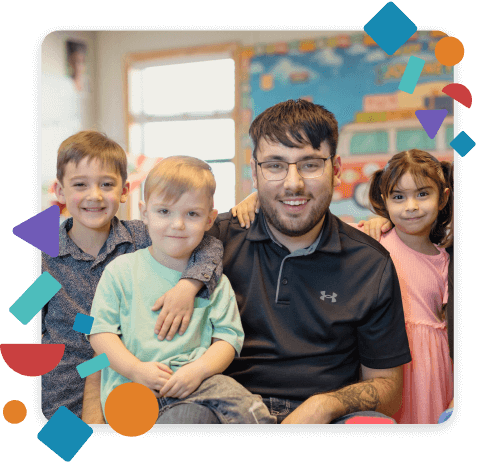
For Isaiah Ysasi, his time at Rocking Horse Learning Center has come full circle. Isaiah was a student in the very first PreK class ever taught at Rocking Horse, and now he’s a PreK teaching assistant for the next generation of Carrizozo children.
“All of the things that I did when I was in PreK, we do with the kids now,” Isaiah said.
And his original PreK teacher? She’s now his boss, as well as a mentor who has helped him apply for early childhood degree programs and grow as a professional.
“She’s always been there for me, even when I was in PreK” Isaiah said. “The same way that we get our kids ready for kindergarten is the same way that she got me ready.”
Isaiah has always enjoyed working with children, and recently finished his associate degree in early childhood from Eastern New Mexico University at Ruidoso. He’s now working on a bachelor’s degree in early childhood and math, supported by New Mexico’s Opportunity Scholarship and a scholarship from the Early Childhood Education and Care Department.
“They’re just so excited, every time I walk in, they all just run and hug. … It’s like they haven’t seen me in forever, and they saw me yesterday.”
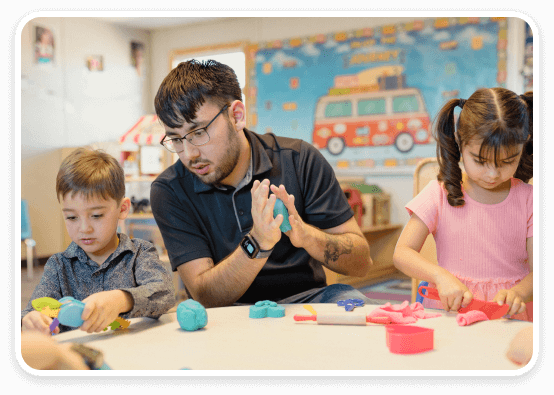
The best parts of his day, he said, are when the students are excited to see him or to learn something new.
“They’re just so excited, every time I walk in, they all just run and hug,” he said. “It’s like they haven’t seen me in forever, and they saw me yesterday.”
Isaiah also has experience working with older students, and said there is something special about the early years.
“It’s just how happy and excited they are, on the daily, just to learn,” he said. “When they finally understand something or when you help them understand, it’s different than what it would be for middle school or high school.”
Another benefit of the job, Isaiah said, is that he can do it without leaving his hometown. Rocking Horse is just minutes from his home, so he can pursue a rewarding career that serves children in his lifelong home of Carrizozo.
